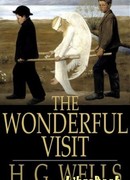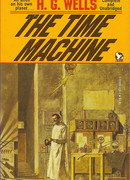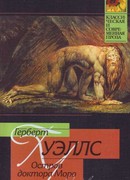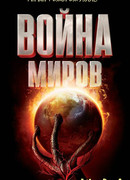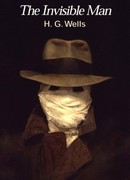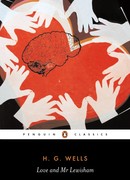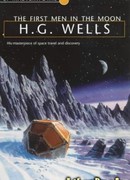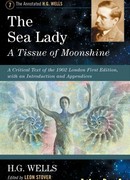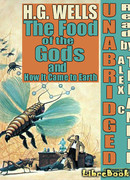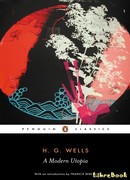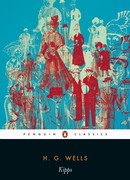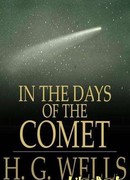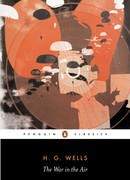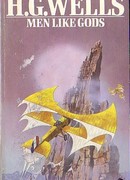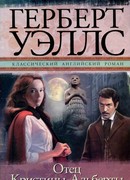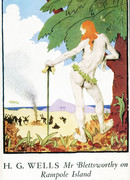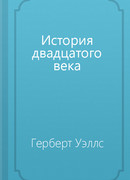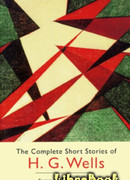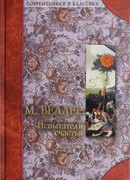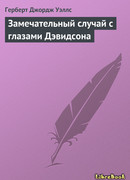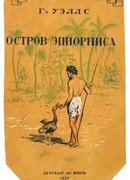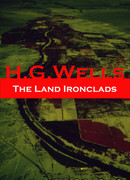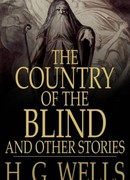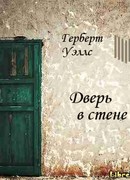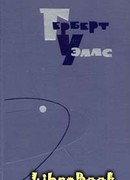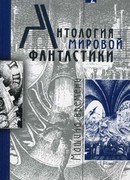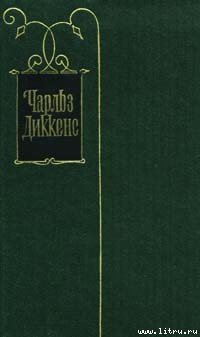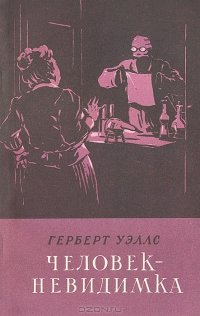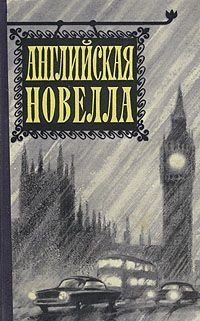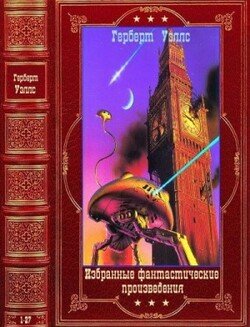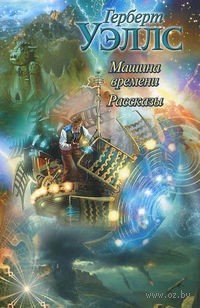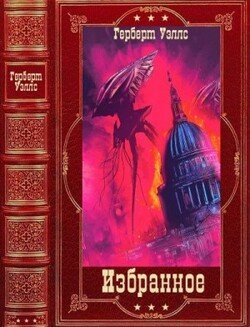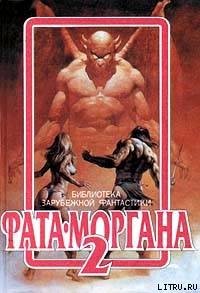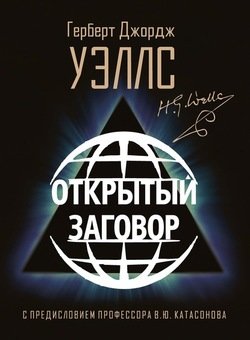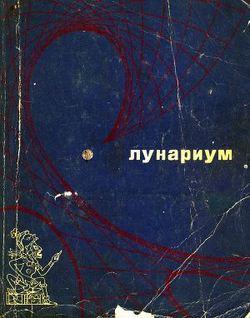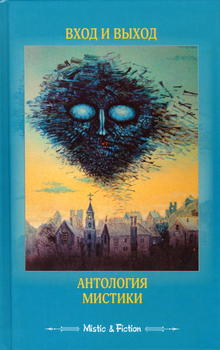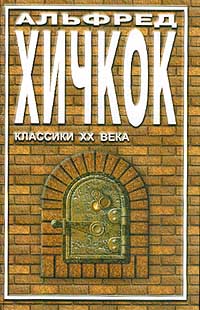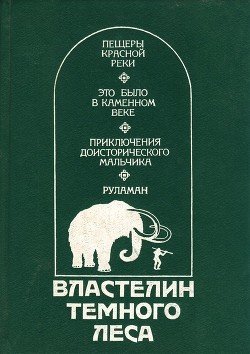Жанры автора
Фантастика (59.52%)
Реализм (11.9%)
Хоррор/Ужасы (9.52%)
Научная фантастика (7.14%)
Сказка/Притча (4.76%)
Магический реализм (2.38%)
Эротика (2.38%)
Роман (2.38%)
Книги автора в списках
- Список самых культовых научно-фантастических произведений на Западе
- Книги, которые должен прочитать каждый
- 200 лучших книг по версии BBC
- 100 книг века по версии Le Monde
- 100 книг по версии Newsweek
- 100 романов по версии «НГ-Ex libris»
- Библиотека всемирной литературы
Цитаты из книг автора
Так бесславно закончилось поклонение Божеству Динамо — вероятно, самое недолговечное из всех людских верований. Но даже это божество могло похвастаться одним мучеником и одним человеческим жертвоприношением.
Из книги «Бог Динамо» — Все цитаты
Я понимал, что погиб безвозвратно, и эта уверенность делала меня способным на все.
Из книги «Остров доктора Моро» — Все цитаты
Сын значит для отца несравнимо больше, чем отец — для сына, будущее неизмеримо важнее прошлого.
Из книги «Пища богов» — Все цитаты
Все люди, жившие в этих домах, все эти жалкие канцелярские крысы ни на что не годны. У них нет мужества, нет гордости, они не умеют сильно желать. А без этого человек гроша ломаного не стоит. Они вечно торопятся на работу, — я видел их тысячи, с завтраком в кармане, они бегут как сумасшедшие, думая только о том, как бы попасть на поезд, в страхе, что их уволят, если они опоздают. Работают они, не вникая в дело; потом торопятся домой, боясь опоздать к обеду; вечером сидят дома, опасаясь ходить по глухим улицам; спят с женами, на которых женились не по любви, а потому, что у тех были деньжонки и они надеялись обеспечить свое жалкое существование. Жизнь их застрахована от несчастных случаев. А по воскресеньям они боятся погубить свою душу. Как будто ад создан для кроликов!
Из книги «Война миров» — Все цитаты
— Я — одинокий волк, живу уединенно, всем чужой, не принимаю прямого участия в жизни. Нет у меня ни жены, ни детей… Кто это сказал про бездетных людей, что это мертвые сучья на древе жизни?.. У меня нет жены, нет детей, нет обязанностей. Даже желаний нет в моем сердце. Я долго не находил себе задачи, цели в жизни. Но, наконец, нашел. Я решил сделать одно дело. Я сказал себе: я хочу это сделать и сделаю. И для того, чтоб сделать это, чтоб побороть инертность своего вялого тела, я прибегал к лекарствам. Боже ты мой! Сколько я их проглотил! Не знаю, все ли чувствуют то, что чувствовал я тогда. Сознаете ли вы, например, все неудобство иметь тело, ощущаете ли всю тяжесть его, чувствуете ли с отчаянием, как много времени оно отнимает у вашей души — времени и жизни?.. Жизнь! Да разве мы живем? Мы живем лишь урывками. Нам надо есть. Мы едим и получаем тупое пищеварительное удовлетворение или, наоборот, раздражение. Нам нужны движение, воздух, иначе наше мышление замедляется, ум тупеет, мысль отвлекается внешними и внутренними впечатлениями и забредает в тупики. А там наступает дремота и сон. Люди и живут-то, кажется, только затем, чтобы спать. Даже в лучшем случае человеку принадлежит такая ничтожная часть его дня. А тут еще приходят на подмогу эти наши друзья-предатели — алкалоиды, которые заглушают естественное чувство усталости и убивают покой. Черный кофе, кокаин…
Из книги «Когда Спящий проснется» — Все цитаты
H. G. Wells was a prolific writer of both fiction and non-fiction. His writing career spanned more than sixty years, and his early science fiction novels earned him the title (along with Jules Verne and Hugo Gernsback) of «The Father of Science Fiction».[1]
Novels[edit]
Wells’s works were reprinted in American science fiction magazines as late as the 1950s
- The Time Machine (1895). Fragments from the serial form in The New Review which were generally excluded in the book version can be found in the anthology edited by Robert M. Philmus, 1975, as can the untitled version published in seven instalments in the National Observer 17 March – 23 June 1894.[2]
- The Wonderful Visit (1895)
- The Island of Doctor Moreau (1896)
- The Wheels of Chance (1896)
- The Invisible Man (1897)
- The War of the Worlds (1898)
- When the Sleeper Wakes (1899)
- Love and Mr Lewisham (1900)
- The First Men in the Moon (1901)
- The Sea Lady (1902)
- The Food of the Gods and How It Came to Earth (1904)
- Kipps (1905)
- A Modern Utopia (1905)
- In the Days of the Comet (1906)
- The War in the Air (1908)
- Tono-Bungay (1909)
- Ann Veronica (1909)
- The History of Mr Polly (1910)
- The Sleeper Awakes (1910) – revised edition of When the Sleeper Wakes (1899)
- The New Machiavelli (1911)
- Marriage (1912)
- The Passionate Friends (1913)
- The Wife of Sir Isaac Harman (1914)
- The World Set Free (1914)
- Bealby: A Holiday (1915)
- Boon (1915) (as Reginald Bliss)
- The Research Magnificent (1915)
- Mr Britling Sees It Through (1916)
- The Soul of a Bishop (1917)
- Joan and Peter: The Story of an Education (1918)
- The Undying Fire (1919)
- The Secret Places of the Heart (1922)
- Men Like Gods (1923)
- The Dream (1924)
- Christina Alberta’s Father (1925)
- The World of William Clissold (1926)
- Meanwhile (1927)
- Mr. Blettsworthy on Rampole Island (1928)
- The Autocracy of Mr. Parham (1930)
- The Bulpington of Blup (1932)
- The Shape of Things to Come (1933)
- The Croquet Player (1936)
- Brynhild (1937)
- Star Begotten (1937)
- The Camford Visitation (1937), novella
- Apropos of Dolores (1938)
- The Brothers (1938)
- The Holy Terror (1939)
- Babes in the Darkling Wood (1940)
- All Aboard for Ararat (1940)
- You Can’t Be Too Careful (1941)
Short stories[edit]
All short stories[edit]
Note: The stories are listed in alphabetical order of title within each year, and not in order of their publication during the year.
- «A Tale of the Twentieth Century» (Science Schools Journal, no. 6, May 1887) – signed S.B. for Septimus Browne[2]
- «A Talk with Gryllotalpa» (Science Schools Journal, no. 3, February 1887) – published under the pseudonym Septimus Browne[2]
- «A Vision of the Past» (Science Schools Journal, no. 7, June 1887) – signed S.S. for «Sosthenes Smith» [2][3]
- «The Chronic Argonauts» (a.k.a. «Chronic Argonaut», a.k.a. «The Chronic Argonaughts») (Science Schools Journal, nos. 17–19, April–June 1888), novelette – the earliest version of The Time Machine.[4]
- «The Devotee of Art» (Science Schools Journal, nos. 24–25, Nov.–Dec. 1888)
- «Æpyornis Island» (Pall Mall Budget, 13 December 1894)
- «A Deal in Ostriches» (Pall Mall Gazette, 20 December 1894)
- «A Family Elopement» (The St. James’s Gazette, 3 March 1894)
- «A Misunderstood Artist» (Pall Mall Gazette, 29 October 1894)
- «How Gabriel Became Thompson» (Truth, 26 July 1894)
- «In the Avu Observatory» (Pall Mall Budget, 9 August 1894)
- «In the Modern Vein» (a.k.a. «In the Modern Vein: An Unsympathetic Love Story», a.k.a. «A Bardlet’s Romance») (Truth, 8 March 1894)
- «The Diamond Maker» (Pall Mall Budget, 16 August 1894)
- «The Flowering of the Strange Orchid» (a.k.a. «The Strange Orchid») (Pall Mall Budget, 2 August 1894)
- «The Hammerpond Park Burglary» (Pall Mall Budget, 5 July 1894)
- «The Jilting of Jane» (Pall Mall Budget, 12 July 1894)
- «The Lord of the Dynamos» (Pall Mall Budget, 6 September 1894)
- «The Man With a Nose» (Pall Mall Gazette, 6 Feb. 1894)
- «The Stolen Bacillus» (Pall Mall Budget, 21 June 1894)
- «The Thing in No. 7» (Pall Mall Budget, 25 October 1894)
- «The Thumbmark» (Pall Mall Budget, 28 June 1894)
- «The Treasure in the Forest» (Pall Mall Budget, 23 August 1894)
- «The Triumphs of a Taxidermist» (Pall Mall Gazette, 3–15 March 1894)
- «Through a Window» (a.k.a. «At a Window») (Black and White, 25 August 1894)
- «A Catastrophe» (New Budget, 4 April 1895)
- «How Pingwill Was Routed» (New Budget, 27 June 1895)
- «Le Mari Terrible» (New Budget, 23 May 1895)
- «Our Little Neighbour» (New Budget, 4 April 1895)
- «Pollock and the Porroh Man» (New Budget, 23 May 1895)
- «The Argonauts of the Air» (The Phil May’s Annual, December 1895)
- «The Cone» (Unicorn, 18 September 1895)
- «The Flying Man» (Pall Mall Gazette, 4 January 1895)
- «The Moth» (a.k.a. «A Moth – Genus Novo») (Pall Mall Gazette, 28 March 1895)
- «The Reconciliation» (a.k.a. «The Bulla») (The Weekly Sun Literary Supplement, 1 December 1895)
- «The Remarkable Case of Davidson’s Eyes» (a.k.a. «The Story of Davidson’s Eyes») (Pall Mall Budget, 28 March 1895)
- «The Sad Story of a Dramatic Critic» (a.k.a. «The Obliterated Man») (New Budget, 15 August 1895)
- «The Temptation of Harringay» (The St. James’s Gazette, 9 February 1895)
- «Wayde’s Essence» (New Budget, 18 April 1895)
- «A Slip Under the Microscope» (The Yellow Book, January 1896)
- «In the Abyss» (Pearson’s Magazine, 1 August 1896)
- «The Apple» (The Idler, October 1896)
- «The Plattner Story» (The New Review, April 1896)
- «The Purple Pileus» (Black and White, December 1896)
- «The Rajah’s Treasure» (Pearson’s Magazine, July 1896)
- «The Red Room» (a.k.a. «The Ghost of Fear») (The Idler, March 1896)
- «The Sea Raiders» (a.k.a. «The Sea-Raiders») (The Weekly Sun Literary Supplement, 6 December 1896)
- «The Story of the Late Mr. Elvesham» (The Idler, May 1896)
- «Under the Knife» (a.k.a. «Slip Under the Knife») (The New Review, January 1896)
- «A Perfect Gentleman on Wheels» (Woman at Home, April 1897)
- «A Story of the Stone Age» (a.k.a. «Stories of the Stone Age») (The Idler, May–September 1897), novella
- «Mr Marshall’s Doppelganger» (Gentlewoman, 18 September 1897)
- «The Crystal Egg» (The New Review, May 1897)
- «The Lost Inheritance» (The Plattner Story and Others., May 1897)
- «The Presence by the Fire» (Penny Illustrated Paper, 14 August 1897)
- «The Star» (The Graphic, December 1897)
- «Jimmy Goggles the God» (The Graphic, December 1898)
- «Miss Winchelsea’s Heart» (The Queen, October 1898)
- «Mr. Ledbetter’s Vacation» (a.k.a. «Mr Ledbetter’s Vacation») (The Strand Magazine, October 1898)
- «The Man Who Could Work Miracles» (a.k.a. «The Man Who Could Work Miracles: A Pantoum in Prose», a.k.a. «Man Who Could Work Miracles») (Illustrated London News, July 1898)
- «The Stolen Body» (The Strand Magazine, November 1898)
«The Stolen Body» was reprinted in Weird Tales in November 1925
- «Walcote» (Science Schools Journal, nos. 25–26, Dec. 1898 – Jan. 1899)
- «A Story of the Days to Come» (Pall Mall Magazine, June–October 1899), novella
- «A Vision of Judgment» (a.k.a. «A Vision of Judgement») (The Butterfly, September 1899)
- «Mr. Brisher’s Treasure» (a.k.a. «Mr Brisher’s Treasure») (The Strand Magazine, April 1899)
- «A Dream of Armageddon» (Black and White Budget, 25 May 1901)
- «Filmer» (The Graphic, December 1901)
- «The New Accelerator» (The Strand Magazine, December 1901)
- «The Inexperienced Ghost» (a.k.a. «The Story of the Inexperienced Ghost») (The Strand Magazine, March 1902)
- «The Loyalty of Esau Common» (The Contemporary Review, February 1902)
- «Mr. Skelmersdale in Fairyland» (a.k.a. «Mr Skelmersdale in Fairyland») (London Magazine, February 1903)
- «The Land Ironclads» (The Strand Magazine, December 1903)
- «The Magic Shop» (The Strand Magazine, June 1903)
- «The Truth About Pyecraft» (The Strand Magazine, April 1903)
- «The Valley of Spiders» (The Strand Magazine, March 1903)
- «The Country of the Blind» (The Strand Magazine, April 1904; revised, 1939), novelette
- «The Empire of the Ants» (a.k.a. «Empire of the Ants») (The Strand Magazine, December 1905)
- «The Door in the Wall» (1906)
- «The Beautiful Suit» (a.k.a. «A Moonlight Fable») (Collier’s Weekly, April 1909)
- «Little Mother Up the Mörderberg» (The Strand Magazine, April 1910), Little Mother series #2
- «My First Aeroplane» (The Strand Magazine, January 1910), Little Mother series #1
- «The Story of the Last Trump» (Boon, 1915)
- «The Wild Asses of the Devil» (Boon, 1915)
- «Peter Learns Arithmetic» (1918)
- «The Invasion from Mars» (1920)
- «The Grisly Folk» (Storyteller Magazine, April 1921), essay
- «Into the Abyss» (1923)
- «The Pearl of Love» (The Strand Magazine, January 1925)
- «The Adventures of Tommy» (1928)
- «A Woman’s Heart» (1931)
- «The Queer Story of Brownlow’s Newspaper» (The Strand Magazine, February 1932)
- «Answer to Prayer» (The New Statesman, 10 April 1937)
- «Depouillement — the Door in the Wall» (1953, published posthumously)
- «The Desert Daisy» (1957, published posthumously)
- «The Haunted Ceiling» (2016, published posthumously)[5]
Collections and uncollected short stories[edit]
Collections:
- Select Conversations with an Uncle (Now Extinct) and Two Other Reminiscences (1895), collection of 14 newspaper articles:
- «Of Conversation and The Anatomy of Fashion», «The Theory of The Perpetual Discomfort of Humanity», «The Use of Ideals», «The Art of Being Photographed», «Bagshot’s Mural Decorations», «On Social Music», «The Joys of Being Engaged», «La Belle Dame Sans Merci», «On a Tricycle», «An Unsuspected Masterpiece», «The Great Change», «The Pains of Marriage», «A Misunderstood Artist», «The Man with a Nose»
- The Stolen Bacillus and Other Incidents (1895),[6] collection of 15 short stories:
- «The Stolen Bacillus», «The Flowering of the Strange Orchid», «In the Avu Observatory», «The Triumphs of a Taxidermist», «A Deal in Ostriches», «Through a Window», «The Temptation of Harringay», «The Flying Man», «The Diamond Maker», «Æpyornis Island», «The Remarkable Case of Davidson’s Eyes», «The Lord of the Dynamos», «The Hammerpond Park Burglary», «The Moth», «The Treasure in the Forest»
- The Plattner Story and Others (1897),[7] collection of 17 short stories:
- «The Plattner Story», «The Argonauts of the Air», «The Story of the Late Mr. Elvesham», «In the Abyss», «The Apple», «Under the Knife», «The Sea Raiders», «Pollock and the Porroh Man», «The Red Room», «The Cone», «The Purple Pileus», «The Jilting of Jane», «In the Modern Vein», «A Catastrophe», «The Lost Inheritance», «The Sad Story of a Dramatic Critic», «A Slip Under the Microscope»
- Thirty Strange Stories (1897),[8] collection of 30 short stories:
- «Æpyornis Island», «In the Abyss», «The Lord of the Dynamos», «The Moth», «The Plattner Story», «Pollock and the Porroh Man», «The Remarkable Case of Davidson’s Eyes», «The Story of the Late Mr. Elvesham», «The Argonauts of the Air», «In the Avu Observatory», «The Stolen Bacillus», «The Triumphs of a Taxidermist», «The Apple», «The Red Room», «The Cone», «The Purple Pileus», «The Jilting of Jane», «A Catastrophe», «The Lost Inheritance», «The Sad Story of a Dramatic Critic», «A Slip Under the Microscope», «The Treasure in the Forest», «A Deal in Ostriches», «The Sea-Raiders», «In the Modern Vein: An Unsympathetic Love Story», «The Reconciliation», «Le Mari Terrible», «The Rajah’s Treasure», «The Strange Orchid», «Slip Under the Knife»
- Tales of Space and Time (1899),[9] collection of 3 short stories and 2 novellas:
- «The Crystal Egg», «The Star», «A Story of the Stone Age» (novella), «A Story of the Days to Come» (novella), «The Man Who Could Work Miracles»
- Twelve Stories and a Dream (1903),[10] collection of 13 short stories:
- «Filmer», «The Magic Shop», «The Valley of Spiders», «The Truth About Pyecraft», «Mr. Skelmersdale in Fairyland», «The Inexperienced Ghost», «Jimmy Goggles the God», «The New Accelerator», «Mr. Ledbetter’s Vacation», «The Stolen Body», «Mr. Brisher’s Treasure», «Miss Winchelsea’s Heart», «A Dream of Armageddon»
- The Country of the Blind and Other Stories, or The Country of the Blind, and Other Stories (1911), collection of 32 short stories and 1 novelette:
- «The Jilting of Jane», «The Cone», «The Stolen Bacillus», «The Flowering of the Strange Orchid», «In the Avu Observatory», «Æpyornis Island», «The Remarkable Case of Davidson’s Eyes», «The Lord of the Dynamos», «The Moth», «The Treasure in the Forest», «The Story of the Late Mr. Elvesham», «Under the Knife», «The Sea Raiders», «The Obliterated Man», «The Plattner Story», «The Red Room», «The Purple Pileus», «A Slip Under the Microscope», «The Crystal Egg», «The Star», «The Man Who Could Work Miracles», «A Vision of Judgment», «Jimmy Goggles the God», «Miss Winchelsea’s Heart», «A Dream of Armageddon», «The Valley of Spiders», «The New Accelerator», «The Truth About Pyecraft», «The Magic Shop», «The Empire of the Ants», «The Door in the Wall», «The Country of the Blind» (novelette), «The Beautiful Suit»
- The Door in the Wall and Other Stories (1911), collection of 7 short stories and 1 novelette:
- «The Door in the Wall», «The Star», «A Dream of Armageddon», «The Cone», «A Moonlight Fable», «The Diamond Maker», «The Lord of the Dynamos», «The Country of the Blind» (novelette)
- Tales of the Unexpected (1922), collection of 15 short stories:
- «The Remarkable Case of Davidson’s Eyes», «The Moth», «The Story of the Late Mr. Elvesham», «Under the Knife», «The Plattner Story», «The Crystal Egg», «The Man Who Could Work Miracles», «A Dream of Armageddon», «The New Accelerator», «The Door in the Wall», «The Apple», «The Temptation of Harringay», «Mr. Skelmersdale in Fairyland», «The Inexperienced Ghost», «The Stolen Body»
- Tales of Wonder (1923), collection of 16 short stories and 1 novelette:
- «Into the Abyss», «Pollock and the Porroh Man», «The Triumphs of a Taxidermist», «In the Avu Observatory», «The Flowering of the Strange Orchid», «Æpyornis Island», «The Sea Raiders», «The Red Room», «The Purple Pileus», «The Star», «A Vision of Judgment», «The Valley of Spiders», «The Truth of Pyecraft, «The Magic Shop», «The Empire of the Ants», «The Country of the Blind» (novelette), «The Beautiful Suit»
- The Country of the Blind (1923), collection of 2 short stories and 1 novelette:
- «The Country of the Blind» (novelette), «The Truth About Pyecraft», «The Beautiful Suit»
- Tales of Life and Adventure (1923), collection of 21 short stories:
- «The Argonauts of the Air», «In the Modern Vein: An Unsympathetic Love Story», «A Catastrophe», «The Lost Inheritance», «A Deal in Ostriches», «Through a Window», «The Flying Man», «The Diamond Maker», «The Hammerpond Park Burglary», «The Jilting of Jane», «The Cone», «The Stolen Bacillus», «The Lord of the Dynamos», «The Treasure in the Forest», «The Obliterated Man», «A Slip Under the Microscope», «Jimmy Goggles the God», «Miss Winchelsea’s Heart», «Filmer», «Mr. Ledbetter’s Vacation», «Mr. Brisher’s Treasure»
- The Empire of the Ants and Other Stories (1925), collection of 3 short stories:
- «The Empire of the Ants», «The Remarkable Case of Davidson’s Eyes», «The Cone»
- The Obliterated Man and Other Stories (1925), collection of 4 short stories:
- «The Obliterated Man», «The Plattner Story», «The Red Room», «A Vision of Judgment»
- The Stolen Bacillus and Other Stories (1925), collection of 5 short stories:
- «The Jilting of Jane», «Æpyornis Island», «In the Avu Observatory», «The Flowering of the Strange Orchid», «The Stolen Bacillus»
- The Country of the Blind and Other Stories (1926), collection of 8 short stories, 2 novelettes and 1 essay:
- «The Country of the Blind» (novelette), «The Door in the Wall», «The Beautiful Suit», «The Empire of the Ants», «The Land Ironclads» (novelette), «The Grisly Folk» (essay), «Little Mother Up the Mörderberg» (Little Mother series #2), «My First Aeroplane» (Little Mother series #1), «A Vision of Judgment», «The Story of the Last Trump», «The Pearl of Love»
- The Short Stories of H. G. Wells, or The Famous Short Stories of H. G. Wells, or The Complete Short Stories of H. G. Wells (1927), collection of 1 novel, 57 short stories, 4 novelettes/novellas and 1 essay:
- The Time Machine (novel), «The Empire of the Ants», «A Vision of Judgement», «The Land Ironclads» (novelette), «The Beautiful Suit», «The Door in the Wall», «The Pearl of Love», «The Country of the Blind» (novelette), «The Stolen Bacillus», «The Flowering of the Strange Orchid», «In the Avu Observatory», «The Triumphs of a Taxidermist», «A Deal in Ostriches», «Through a Window», «The Temptation of Harringay», «The Flying Man», «The Diamond Maker», «Æpyornis Island», «The Remarkable Case of Davidson’s Eyes», «The Lord of the Dynamos», «The Hammerpond Park Burglary», «The Moth», «The Treasure in the Forest», «The Plattner Story», «The Argonauts of the Air», «The Story of the Late Mr. Elvesham», «In the Abyss», «The Apple», «Under the Knife», «The Sea-Raiders», «Pollock and the Porroh Man», «The Red Room», «The Cone», «The Purple Pileus», «The Jilting of Jane», «In the Modern Vein: An Unsympathetic Love Story», «A Catastrophe», «The Lost Inheritance», «The Sad Story of a Dramatic Critic», «A Slip Under the Microscope», «The Reconciliation», «My First Aeroplane» (Little Mother series #1), «Little Mother Up the Mörderberg» (Little Mother series #2), «The Story of the Last Trump», «The Grisly Folk» (essay), «The Crystal Egg», «The Star», «A Story of the Stone Age» (novella), «A Story of the Days to Come» (novella), «The Man Who Could Work Miracles», «Filmer», «The Magic Shop», «The Valley of Spiders», «The Truth About Pyecraft», «Mr. Skelmersdale in Fairyland», «The Inexperienced Ghost», «Jimmy Goggles the God», «The New Accelerator», «Mr. Ledbetter’s Vacation», «The Stolen Body», «Mr. Brisher’s Treasure», «Miss Winchelsea’s Heart», «A Dream of Armageddon»
- The Treasure in the Forest and Other Stories (1929), collection
- The Valley of Spiders (1930), collection
- Selections from the Early Prose Works of H. G. Wells (1931), collection of 4 extracts from novels, 1 short story and 1 novelette:
- «The Martians Come to Earth» (extract from The War of the Worlds), «The Giant Rats» (extract from The Food of the Gods), «The Invisible Man Explains» (extract from The Invisible Man), «There and Back Again» (extract from The Time Machine), «The New Accelerator», «The Land Ironclads» (novelette)
- The Man Who Could Work Miracles (1931), collection of 3 short stories:
- «The Man Who Could Work Miracles», «The Door in the Wall», «The Sea Raiders»
- The Stolen Body and Other Tales of the Unexpected (1931), collection of 13 short stories:
- «The Stolen Body», «The Remarkable Case of Davidson’s Eyes», «The Moth», «The Story of the Late Mr. Elvesham», «Under the Knife», «The Plattner Story», «The Crystal Egg», «The Man Who Could Work Miracles», «A Dream of Armageddon», «The New Accelerator», «The Door in the Wall», «The Apple», «The Inexperienced Ghost»
- The Treasure in the Forest and Other Stories (1931), collection of 3 short stories:
- «The Treasure in the Forest», «The Late Mr. Elvesham», «Under the Knife»
- A Slip Under the Microscope (1931), collection of 2 short stories:
- «The Crystal Egg», «A Slip Under the Microscope»
- A Woman’s Heart and Other Stories (1931), collection of 2 short stories:
- «A Woman’s Heart», «A Dream of Armageddon»
- The Valley of Spiders and Other Stories (1931), collection of 3 short stories:
- «The Valley of Spiders», «The New Accelerator», «The Moth»
- The Favorite Short Stories of H. G. Wells, or The Famous Short Stories of H. G. Wells (1937), collection of 1 novel, 28 short stories and 2 novelettes:
- «A Deal in Ostriches», «A Vision of Judgement», «In the Abyss», «In the Avu Observatory», «Pollock and the Porroh Man», «The Apple», «The Argonauts of the Air», «The Beautiful Suit», «The Country of the Blind» (novelette), «The Diamond Maker», «The Door in the Wall», «The Empire of the Ants», «The Flowering of the Strange Orchid», «The Flying Man», «The Hammerpond Park Burglary», «The Land Ironclads» (novelette), «The Lord of the Dynamos», «The Moth», «The Pearl of Love», «The Plattner Story», «The Remarkable Case of Davidson’s Eyes», «The Sea-Raiders», «The Stolen Bacillus», «The Story of the Late Mr. Elvesham», «The Temptation of Harringay», The Time Machine (novel), «The Treasure in the Forest», «The Triumphs of a Taxidermist», «Through a Window», «Under the Knife», «Æpyornis Island»
- Short Stories: First Series (1940), collection of 13 short stories:
- «The Truth About Pyecraft», «The Man Who Could Work Miracles», «The Star», «The New Accelerator», «The Story of the Late Mr. Elvesham», «The Door in the Wall», «The Magic Shop», «The Plattner Story», «The Flowering of the Strange Orchid», «The Red Room», «The Temptation of Harringay», «The Inexperienced Ghost», «The Beautiful Suit»
- Short Stories: Second Series (1940), collection
- Two Film Stories: Things to Come / The Man Who Could Work Miracles (1940), collection of 1 screenplay from novel and 1 short story:
- Things to Come (screenplay from The Shape of Things to Come), «Man Who Could Work Miracles»
- The Truth About Pyecraft and Other Short Stories (1943), collection
- The Man Who Could Work Miracles (1943), collection of 3 short stories:
- «The Man Who Could Work Miracles», «The Hammerpond Park Burglary», «The Apple»
- The Truth About Pyecraft and Other Stories (1944), collection
- The Time Machine: An Invention and Other Stories (1946), collection of 1 novel and 14 short stories:
- The Time Machine (novel), «The Stolen Bacillus», «A Deal in Ostriches», «Through a Window», «The Flying Man», «The Diamond Maker», «The Lord of the Dynamos», «The Hammerpond Park Burglary», «The Argonauts of the Air», «The Cone», «A Catastrophe», «A Slip Under the Microscope», «Filmer», «Jimmy Goggles the God», «The Man Who Could Work Miracles: A Pantoum in Prose»
- The Country of the Blind and Other Stories (1947), collection of 3 short stories and 1 novelette:
- «The Country of the Blind» (novelette), «The Door in the Wall», «The Truth About Pyecraft», «A Deal in Ostriches»
- 28 Science Fiction Stories of H. G. Wells (1952), collection of 2 novels, 22 short stories and 4 novelettes/novellas:
- Men Like Gods (novel), «The Empire of the Ants», «The Land Ironclads» (novelette), «The Country of the Blind» (novelette), «The Stolen Bacillus», «The Flowering of the Strange Orchid», «In the Avu Observatory», «A Story of the Stone Age» (novella), «Æpyornis Island», «The Remarkable Case of Davidson’s Eyes», «The Plattner Story», «The Argonauts of the Air», «The Story of the Late Mr. Elvesham», «In the Abyss», Star Begotten (novel), «Under the Knife», «The Sea Raiders», «The Crystal Egg», «The Star», «The Man Who Could Work Miracles», «Filmer», «A Story of the Days to Come» (novella), «The Magic Shop», «The Valley of Spiders», «The Truth About Pyecraft», «The New Accelerator», «The Stolen Body», «A Dream of Armageddon»
- Seven Stories (1953), collection of 7 short stories:
- «Depouillement — the Door in the Wall», «The Moth», «The Apple», «The Purple Pileus», «The New Accelerator», «The Inexperienced Ghost», «The Man Who Could Work Miracles»
- Two Tales (1956), collection of 2 short stories:
- «The Truth About Pyecraft», «The Man Who Could Work Miracles»
- Selected Short Stories (1958), collection of 1 novel, 17 short stories, 2 novelettes and 1 essay:
- The Time Machine (novel), «The Land Ironclads» (novelette), «The Door in the Wall», «The Country of the Blind» (novelette), «The Stolen Bacillus», «The Diamond Maker», «Aepyornis Island», «The Remarkable Case of Davidson’s Eyes», «The Lord of the Dynamos», «The Plattner Story», «The Argonauts of the Air», «In the Abyss», «Under the Knife», «The Sea Raiders», «The Cone», «The Purple Pileus», «The Grisly Folk» (essay), «The Man Who Could Work Miracles», «The Truth About Pyecraft», «Jimmy Goggles the God», «The New Accelerator»
- Best Stories of H. G. Wells (1960), collection of 14 short stories and 2 novelettes/novellas:
- «The Lord of the Dynamos», «The Plattner Story», «The Argonauts of the Air», «The Story of the Late Mr. Elvesham», «The Crystal Egg», «The Star», «The Man Who Could Work Miracles», «The Sea-Raiders», «The Magic Shop», «The Valley of Spiders», «The Truth About Pyecraft», «The Land Ironclads» (novelette), «Mr. Skelmersdale in Fairyland», «The New Accelerator», «A Dream of Armageddon», «A Story of the Days to Come» (novella)
- The Time Machine and Other Stories (1963), collection of 1 novel, 2 short stories and 1 novelette:
- The Time Machine (novel), «The Empire of the Ants», «The Country of the Blind» (novelette), «The Man Who Could Work Miracles»
- The Valley of Spiders (1964), collection of 13 short stories:
- «Pollock and the Porroh Man», «In the Avu Observatory», «The Flowering of the Strange Orchid», «The Red Room», «The Valley of Spiders», «The Empire of the Ants», «The Moth», «The Story of the Late Mr. Elvesham», «The Temptation of Harringay», «The Inexperienced Ghost», «The Stolen Body», «The Crystal Egg», «The Door in the Wall»
- The Cone (1965), collection of 12 short stories:
- «The Cone», «Jimmy Goggles the God», «The Beautiful Suit», «Under the Knife», «The Lord of the Dynamos», «Through a Window», «The Star», «A Dream of Armageddon», «The Treasure in the Forest», «The Apple», «Æpyornis Island», «Mr. Skelmersdale in Fairyland»
- The Inexperienced Ghost and Nine Other Stories (1965), collection of 9 short stories and 1 novelette:
- «The Inexperienced Ghost», «The Magic Shop», «The Country of the Blind» (novelette), «The Apple», «The Stolen Body», «A Slip Under the Microscope», «The Purple Pileus», «Pollock and the Porroh Man», «The Man Who Could Work Miracles», «The Flowering of the Strange Orchid»
- Best Science Fiction Stories of H. G. Wells, or The Best Science Fiction Stories of H. G. Wells (1966), collection of 1 novel and 17 short stories:
- «Æpyornis Island», «The Crystal Egg», «In the Abyss», «The Lord of the Dynamos», «The Man Who Could Work Miracles», «The New Accelerator», «The Plattner Story», «The Remarkable Case of Davidson’s Eyes», «The Star», «A Dream of Armageddon», «Filmer», «In the Avu Observatory», «The Diamond Maker», «The Apple», «The Purple Pileus», «The Sea-Raiders», «The Strange Orchid», The Invisible Man (novel)
- Early Writings in Science and Science Fiction (1975), collection of 1 novel, 1 extract from novel, 2 short stories and 24 essays:
- «A Talk with Gryllotalpa», «The Rediscovery of the Unique» (essay), «Flat Earth Again» (essay), «The Limits of Individual Plasticity» (essay), «On Comparative Theology» (essay), The Time Machine (novel), «The Time Machine» (extract from The Time Machine), «The «Cyclic» Delusion» (essay), «The Visibility of Change in the Moon» (essay), «The Possible Individuality of Atoms» (essay), «The Biological Problem of To-day» (essay), «The Rate of Change in Species» (essay), «The Duration of Life» (essay), «Death» (essay), «Concerning Skeletons» (essay), «Another Basis for Life» (essay), «A Vision of the Past», «Zoological Retrogression» (essay), «On Extinction» (essay), «Life in the Abyss» (essay), «Intelligence on Mars» (essay), «Ancient Experiments in Co-Operation» (essay), «Province of Pain» (essay), «The Sun God and the Holy Stars» (essay), «Bye-Products in Evolution» (essay), «Bio-Optimism» (essay), «Human Evolution, an Artificial Process» (essay), «Morals and Civilisation» (essay)
- The Time Machine (1975), collection of 1 novel and 1 short story:
- The Time Machine (novel), «The Man Who Could Work Miracles»
- Empire of the Ants and 8 Other Science Fiction Stories (1977), collection of 9 short stories:
- «The Crystal Egg», «The Man Who Could Work Miracles», «The Plattner Story», «A Dream of Armageddon», «Aepyornis Island», «In the Abyss», «The Sea Raiders», «Filmer», «Empire of the Ants»
- The Empire of the Ants (and Other Stories) (1977), collection of 4 short stories and 1 novelette:
- «The Empire of the Ants», «The Country of the Blind» (novelette), «The Crystal Egg», «The Man Who Could Work Miracles», «The Magic Shop»
- The Man with the Nose and Other Uncollected Stories of H. G. Wells (1984), collection
- The Country of the Blind and Other Science-Fiction Stories (1997), collection of 5 short stories and 1 novelette:
- «The Country of the Blind» (revised novelette), «The Star», «The New Accelerator», «The Remarkable Case of Davidson’s Eyes», «Under the Knife», «The Queer Story of Brownlow’s Newspaper»
- The Inexperienced Ghost (1998), collection of 2 short stories:
- «The Inexperienced Ghost», «The Temptation of Harringay»
- The Red Room and Other Stories (1998), collection
- Selected Stories of H. G. Wells (2004), collection of 24 short stories and 2 novelettes:
- «A Slip Under the Microscope», «The Remarkable Case of Davidson’s Eyes», «The Plattner Story», «Under the Knife», «The Crystal Egg», «The New Accelerator», «The Stolen Body», «The Argonauts of the Air», «In the Abyss», «The Star», «The Land Ironclads» (novelette), «A Dream of Armageddon», «The Lord of the Dynamos», «The Valley of Spiders», «The Story of the Late Mr. Elvesham», «The Man Who Could Work Miracles», «The Magic Shop», «Mr. Skelmersdale in Fairyland», «The Door in the Wall», «The Presence by the Fire», «A Vision of Judgment», «The Story of the Last Trump», «The Wild Asses of the Devil», «Answer to Prayer», «The Queer Story of Brownlow’s Newspaper», «The Country of the Blind» (revised novelette)
- The Country of the Blind (2005), collection of 2 short stories and 1 novelette:
- «The Country of the Blind» (novelette), «The Remarkable Case of Davidson’s Eyes», «The Stolen Bacillus»
- The Stolen Bacillus (2005), collection
- The Man Who Could Work Miracles, or A Dream of Armageddon: The Complete Supernatural Tales (2006), collection of 30 short stories and 1 novelette:
- «The Devotee of Art», «Walcote», «The Flowering of the Strange Orchid», «The Lord of the Dynamos», «The Temptation of Harringay», «The Moth», «Pollock and the Porroh Man», «Under the Knife», «The Plattner Story», «The Red Room», «The Story of the Late Mr. Elvesham», «The Apple», «The Crystal Egg», «The Presence by the Fire», «The Man Who Could Work Miracles», «The Stolen Body», «A Vision of Judgment», «A Dream of Armageddon», «The New Accelerator», «The Inexperienced Ghost», «Mr Skelmersdale in Fairyland», «The Truth About Pyecraft», «The Magic Shop», «The Country of the Blind» (novelette), «The Door in the Wall», «The Beautiful Suit», «The Wild Asses of the Devil», «The Story of the Last Trump», «The Pearl of Love», «The Queer Story of Brownlow’s Newspaper», «Answer to Prayer»
- The Country of the Blind and Other Selected Stories (2007), collection of 21 short stories and 2 novelettes/novellas:
- «The Lord of the Dynamos», «The Remarkable Case of Davidson’s Eyes», «The Moth», «A Catastrophe», «The Cone», «The Argonauts of the Air», «Under the Knife», «A Slip Under the Microscope», «The Plattner Story», «The Story of the Late Mr Elvesham», «In the Abyss», «The Sea Raiders», «The Crystal Egg», «A Story of the Stone Age» (novella), «The Star», «The Man Who Could Work Miracles», «A Dream of Armageddon», «The New Accelerator», «The Truth About Pyecraft», «The Country of the Blind» (novelette), «The Empire of the Ants», «The Door in the Wall», «The Wild Asses of the Devil»
- Man Who Could Work Miracles and Things to Come (2010), collection of 1 novel and 1 short story:
- «The Man Who Could Work Miracles», Things to Come (novel)
- H. G. Wells: Tales of the Weird and Supernatural (2010), collection of 19 short stories:
- «The Man Who Could Work Miracles», «Pollock and the Porroh Man», «The Stolen Body», «The Story of the Late Mr. Elvesham», «A Dream of Armageddon», «The Magic Shop», «A Vision of Judgement», «The Door in the Wall», «The Temptation of Harringay», «The Apple», «The Red Room», «The Story of the Last Trump», «Mr. Skelmersdale in Fairyland», «Under the Knife», «The Story of the Inexperienced Ghost», «A Moth—Genus Novo», «The Wild Asses of the Devil», «The Presence by the Fire», «Mr. Marshall’s Doppelganger»
- The Door in the Wall (2011), collection of 3 short stories:
- «The Door in the Wall», «The Sea Raiders», «The Moth»
- Complete Short Story Omnibus (2011), collection of 78 short stories, 5 novelettes/novellas and 1 essay:
- «The Stolen Bacillus», «The Flowering of the Strange Orchid», «In the Avu Observatory», «The Triumphs of a Taxidermist», «A Deal in Ostriches», «Through a Window», «The Temptation of Harringay», «The Flying Man», «The Diamond Maker», «Aepyornis Island», «The Remarkable Case of Davidson’s Eyes», «The Lord of the Dynamos», «The Hammerpond Park Burglary», «The Moth», «The Treasure in the Forest», «The Plattner Story», «The Argonauts of the Air», «The Story of the Late Mr Elvesham», «In the Abyss», «The Apple», «Under the Knife», «The Sea Raiders» (variant of The Sea-Raiders), «Pollock and the Porroh Man», «The Red Room», «The Cone», «The Purple Pileus», «The Jilting of Jane», «In the Modern Vein: An Unsympathetic Love Story», «A Catastrophe», «The Lost Inheritance», «The Sad Story of a Dramatic Critic», «A Slip Under the Microscope», «The Crystal Egg», «The Star», «A Story of the Stone Age» (novella), «A Story of the Days to Come» (novella), «The Man Who Could Work Miracles», «Filmer», «The Magic Shop», «The Valley of Spiders», «The Truth About Pyecraft», «Mr Skelmersdale in Fairyland», «The Inexperienced Ghost», «Jimmy Goggles the God», «The New Accelerator», «Mr Ledbetter’s Vacation», «The Stolen Body», «Mr Brisher’s Treasure», «Miss Winchelsea’s Heart», «A Dream of Armageddon», «The Door in the Wall», «The Empire of the Ants», «A Vision of Judgment», «The Land Ironclads» (novelette), «The Beautiful Suit», «The Pearl of Love», «The Country of the Blind» (novelette), «The Reconciliation», «My First Aeroplane» (Little Mother series #1), «Little Mother Up the Mörderberg» (Little Mother series #2), «The Story of the Last Trump», «The Grisly Folk» (essay), «A Tale of the Twentieth Century: For Advanced Thinkers», «Walcote», «The Devotee of Art», «The Man with a Nose», «A Perfect Gentleman on Wheels», «Wayde’s Essence», «A Misunderstood Artist», «Le Mari Terrible», «The Rajah’s Treasure», «The Presence by the Fire», «Mr Marshall’s Doppelganger», «The Thing in No. 7», «The Thumbmark», «A Family Elopement», «Our Little Neighbour», «How Gabriel Became Thompson», «How Pingwill Was Routed», «The Loyalty of Esau Common: A Fragment», «The Wild Asses of the Devil», «Answer to Prayer», «The Queer Story of Brownlow’s Newspaper», «The Country of the Blind» (revised novelette)
- The War of the Worlds (2013), collection of 1 novel, 1 short story and 1 essay:
- «The Crystal Egg», The War of the Worlds (novel), «The Things That Live on Mars» (essay)
- A Slip Under the Microscope (2015), collection of 2 short stories:
- «The Door in the Wall», «A Slip Under the Microscope»
- The Crystal Egg and Other Stories (2017), collection of 30 short stories, 3 novelettes/novellas and 1 essay:
- «The Crystal Egg», «The Cone», «The Country of the Blind» (novelette), «The Man Who Could Work Miracles», «A Story of the Stone Age» (novella), «The Star», «The Red Room», «In the Abyss», «The Plattner Story», «The New Accelerator», «A Slip Under the Microscope», «The Stolen Bacillus», «The Remarkable Case of Davidson’s Eyes», «The Lord of the Dynamos», «The Grisly Folk» (essay), «The Door in the Wall», «The Diamond Maker», «Under the Knife», «The Sea-Raiders», «The Purple Pileus», «The Truth About Pyecraft», «Jimmy Goggles the God», «The Flowering of the Strange Orchid», «The Argonauts of the Air», «Miss Winchelsea’s Heart», «A Vision of Judgement», «The Land Ironclads» (novelette), «The Flying Man», «In the Avu Observatory», «The Triumphs of a Taxidermist», «A Deal in Ostriches», «Through a Window», «The Temptation of Harringay», «The Beautiful Suit»
- The Island of Doctor Moreau & Other Works (2017), collection
- A Novel Journal: H. G. Wells (2017), collection
- The Amazing Stories Collection (2018), collection
- H. G. Wells Short Stories (2018), collection
Uncollected short stories:
- «The Chronic Argonauts» (a.k.a. «Chronic Argonaut», a.k.a. «The Chronic Argonaughts») (Science Schools Journal, nos. 17–19, April–June 1888), novelette
- «Peter Learns Arithmetic» (1918)
- «The Invasion from Mars» (1920)
- «The Adventures of Tommy» (1928)
- «The Desert Daisy» (1957, published posthumously)
- «The Haunted Ceiling» (2016, published posthumously)
Film stories[edit]
Published versions of film scripts and scenarios written by Wells:
- The King Who Was a King: The Book of a Film (1929 – scenario for a film which was never made)
- Things to Come (1935 – adaptation of The Shape of Things to Come and The Work, Wealth and Happiness of Mankind)
- Man Who Could Work Miracles (1936)
- The New Faust (in Nash’s Pall Mall Magazine, December 1936 – unmade adaptation of «The Story of the Late Mr. Elvesham»)
- Film Stories (1940 — collection of Things to Come and Man Who Could Work Miracles)
Non-fiction[edit]
- Collections of articles
- The War That Will End War (1914)
- An Englishman Looks at the World (1914); US title: Social Forces in England and America
- The Elements of Reconstruction (1916) – published under the pseudonym D. P.
- God the Invisible King (1917)
- Russia in the Shadows (1920)
- A Year of Prophesying (1925)
- The Way the World is Going (1928)
- The New America: The New World (1935)
- Autobiographies
- Experiment in Autobiography (1934)
- Biographies
- Frank Swinnerton (1920) – with Arnold Bennett, Grant Overton
- The Story of a Great Schoolmaster: Being a Plain Account of the Life and Ideas of Sanderson of Oundle (1924) – a biography of Frederick William Sanderson
- Essays
- Certain Personal Matters (1897)
- The Peace of the World (1915)
- In the Fourth Year (1918)
- Washington and the Hope of Peace (a.k.a. «Washington and the Riddle of Peace») (1922)
- World Brain (1938)
- Travels of a Republican Radical in Search of Hot Water (1939)
- History
- What is Coming? (1916)
- War and the Future (a.k.a. Italy, France and Britain at War) (1917)
- The Idea of a League of Nations (1919) – with Viscount Edward Grey, Lionel Curtis, William Archer, H. Wickham Steed, A. E. Zimmern, J. A. Spender, Viscount Bryce and Gilbert Murray
- The Way to the League of Nations (1919) – with Viscount Edward Grey, Lionel Curtis, William Archer, H. Wickham Steed, A. E. Zimmern, J. A. Spender, Viscount Bryce and Gilbert Murray
- The New Teaching of History: with a reply to some recent criticisms of the Outline of History (H. G. Wells) (1921)
- A Short History of the World (1922) (New and Rev Ed. 1946)
- A Short History of Mankind (1925)
- Mr. Belloc Objects to «The Outline of History» (1926)
- The Common Sense of War and Peace (1940)
- The Pocket History of the World (1941)
- Crux Ansata: An Indictment of the Roman Catholic Church (1943)
- Politics
- This Misery of Boots (1907)
- Will Socialism Destroy the Home? (1907)
- New Worlds for Old (1908)
- The Great State (1912)
- The War and Socialism (1915)
- The Outline of History series:
- The Outline of History (1920)
- The Science of Life (1930) – with Julian S. Huxley and G. P. Wells
- The Work, Wealth and Happiness of Mankind (1931)
- The Salvaging of Civilization (1921)
- Socialism and the Scientific Motive (1923)
- Wells’ Social Anticipations (1927)
- The Open Conspiracy (a.k.a. What Are We To Do With Our Lives?) (1928)
- The New Russia (1931)
- What Should be Done—Now: A Memorandum on the World Situation, John Day (1932)
- After Democracy (1932)
- Marxism vs Liberalism (1934) – with Joseph Stalin
- The New World Order (1940)
- The Rights of Man (1940)
- Guide to the New World (1941)
- Modern Russian and English Revolutionaries (1942) – with Lev Uspensky
- Phoenix: A Summary of the Inescapable Conditions of World Reorganization (1942)
- Science
- Text-Book of Biology (1893)
- Honours Physiography (1893) – with R. A. Gregory
- Anticipations series:
- Anticipations of the Reactions of Mechanical and Scientific Progress upon Human Life and Thought (1901)
- Mankind in the Making (1903)
- Sociology
- Great Thoughts From H. G. Wells (1912)
- Thoughts From H. G. Wells (1912)
- Divorce as I See It (1930)
- The Anatomy of Frustration (1936)
- The Fate of Homo Sapiens (a.k.a. The Fate of Man) (1939)
- The Outlook for Homo Sapiens (1942)
- The Conquest of Time (1942)
- ‘42 to ’44: A Contemporary Memoir (1944)
- Reshaping Man’s Heritage (1944) – with J. B. S. Haldane, Julian S. Huxley
- The Happy Turning (1945)
- Mind at the End of Its Tether (1945)
- Others
- The Future in America (1906), travels
- First and Last Things (1908), philosophy
- Floor Games (1911), guide
- Little Wars (1913), guide
- God the Invisible King (1917), religion
- Introduction to Nocturne (1917)
- Points of View (1930)
- Selections From the Early Prose Works of H. G. Wells (1931)
- H.G. Wells: Early Writings in Science and Science Fiction (1975)
Articles[edit]
- «Zoological Retrogression» (1891)
- «The Rediscovery of the Unique» (1891)
- «Ancient Experiments in Co-Operation» (1892)
- «On Extinction» (1893)
- «The Man of the Year Million» (1893)
- «The Sun God and the Holy Stars» (1894)
- «Province of Pain» (1894)
- «Life in the Abyss» (1894)
- «Another Basis for Life» (1894)
- «The Rate of Change in Species» (1894)
- «The Biological Problem of To-day» (1894)
- «The ‘Cyclic’ Delusion» (1894)
- «The Flat Earth Again» Pall Mall Gazette (2 April 1894)[2]
- «Bio-Optimism» (1895)
- «Bye-Products in Evolution» (1895)
- «Death» (1895)
- «The Duration of Life» (1895)
- «The Visibility of Change in the Moon» (1895)
- «The Limits of Individual Plasticity» Saturday Review (18 January 1895) later incorporated in The Island Of Dr Moreau[2]
- «Human Evolution, an Artificial Process» (1896)
- «Intelligence on Mars» (1896)
- «Concerning Skeletons» (1896)
- «The Possible Individuality of Atoms» (1896)
- «Morals and Civilisation» (1897)
- «On Comparative Theology» (1898)
- «The Discovery of the Future» (1902)
- «The English House of the Future» (1903; several other authors)
- «Skepticism of the Instrument» (1903)
- «The So-Called Science of Sociology» (1906)[11]
- «The Things that Live on Mars» (illustrated by William Robinson Leigh) (1908)
- «The Grisly Folk» (1921)
- «Mr. Wells and Mr. Vowles» (1926)[12]
- «The Red Dust a Fact!» (1927)
- «Democracy Under Revision» (1927)
- «Wells Speaks Some Plain Words to us,» New York Times, 16 October 1927
- «Common Sense of World Peace» (1929)
- «Foretelling the Future» (1938)
References[edit]
- ^ Adam Charles Roberts, «The History of Science Fiction»: Page 48 in Science Fiction, Routledge, ISBN 0-415-19204-8.
- ^ a b c d e f Anthologized in H. G. Wells (1975). H. G. Wells: Early Writings in Science and Science-Fiction. Robert W. Philmus and David Y. Hughes. Berkeley: University of California. – see Everett Franklin Bleiler; Richard Bleiler (1990). Science-fiction, the Early Years: A Full Description of More Than 3,000 Science-fiction Stories from Earliest Times to the Appearance of the Genre Magazines in 1930 : with Author, Title, and Motif Indexes. Kent State University Press. pp. 795–6. ISBN 9780873384162.
- ^ Joseph F. Clarke (1977). Pseudonyms. BCA. p. 112.
- ^ Everett Franklin Bleiler; Richard Bleiler (1990). Science-fiction, the Early Years: A Full Description of More Than 3,000 Science-fiction Stories from Earliest Times to the Appearance of the Genre Magazines in 1930 : with Author, Title, and Motif Indexes. Kent State University Press. p. 796. ISBN 9780873384162.
- ^ «The Haunted Ceiling» by H. G. Wells The Strand Magazine, accessed 29 November 2016.
- ^ at Internet Archive Stolen Bacillus
- ^ at Google books The Plattner Story
- ^ at Internet Archive Thirty Strange Stories
- ^ at Internet Archive Tales
- ^ at Google books Twelve Stories
- ^ Wells, H. G. (1906). «The So-Called Science of Sociology». The Sociological Review: 357–369. doi:10.1177/0038026106SP300134. S2CID 150324739.
- ^ Letter to the Editor of The New Age Vol., XXXV, no. 24, 18 September 1930, p. 251 about pestiferous collaboration with Hugh Pembroke Vowles. «The William Ready Division of Archives and Research Collections». McMaster University Libraries. Retrieved 28 September 2007. CS1 maint: multiple names: authors list (link)
External links[edit]
- Works by H. G. Wells bibliography in eBook form at Standard Ebooks
- The complete short fiction of H. G. Wells at Standard Ebooks
- Fantastic Fiction. H. G. Wells Bibliography.
- H. G. Wells at the Internet Speculative Fiction Database
- Index to Science Fiction Anthologies and Collections Via Internet Archive. WELLS, H(erbert) G(eorge).
- Works by H. G. Wells at Project Gutenberg
- Works by H. G. Wells at Faded Page (Canada)
- H. G. Wells bibliography at IMDb listing film and TV adaptations
H. G. Wells was a prolific writer of both fiction and non-fiction. His writing career spanned more than sixty years, and his early science fiction novels earned him the title (along with Jules Verne and Hugo Gernsback) of «The Father of Science Fiction».[1]
Novels[edit]
Wells’s works were reprinted in American science fiction magazines as late as the 1950s
- The Time Machine (1895). Fragments from the serial form in The New Review which were generally excluded in the book version can be found in the anthology edited by Robert M. Philmus, 1975, as can the untitled version published in seven instalments in the National Observer 17 March – 23 June 1894.[2]
- The Wonderful Visit (1895)
- The Island of Doctor Moreau (1896)
- The Wheels of Chance (1896)
- The Invisible Man (1897)
- The War of the Worlds (1898)
- When the Sleeper Wakes (1899)
- Love and Mr Lewisham (1900)
- The First Men in the Moon (1901)
- The Sea Lady (1902)
- The Food of the Gods and How It Came to Earth (1904)
- Kipps (1905)
- A Modern Utopia (1905)
- In the Days of the Comet (1906)
- The War in the Air (1908)
- Tono-Bungay (1909)
- Ann Veronica (1909)
- The History of Mr Polly (1910)
- The Sleeper Awakes (1910) – revised edition of When the Sleeper Wakes (1899)
- The New Machiavelli (1911)
- Marriage (1912)
- The Passionate Friends (1913)
- The Wife of Sir Isaac Harman (1914)
- The World Set Free (1914)
- Bealby: A Holiday (1915)
- Boon (1915) (as Reginald Bliss)
- The Research Magnificent (1915)
- Mr Britling Sees It Through (1916)
- The Soul of a Bishop (1917)
- Joan and Peter: The Story of an Education (1918)
- The Undying Fire (1919)
- The Secret Places of the Heart (1922)
- Men Like Gods (1923)
- The Dream (1924)
- Christina Alberta’s Father (1925)
- The World of William Clissold (1926)
- Meanwhile (1927)
- Mr. Blettsworthy on Rampole Island (1928)
- The Autocracy of Mr. Parham (1930)
- The Bulpington of Blup (1932)
- The Shape of Things to Come (1933)
- The Croquet Player (1936)
- Brynhild (1937)
- Star Begotten (1937)
- The Camford Visitation (1937), novella
- Apropos of Dolores (1938)
- The Brothers (1938)
- The Holy Terror (1939)
- Babes in the Darkling Wood (1940)
- All Aboard for Ararat (1940)
- You Can’t Be Too Careful (1941)
Short stories[edit]
All short stories[edit]
Note: The stories are listed in alphabetical order of title within each year, and not in order of their publication during the year.
- «A Tale of the Twentieth Century» (Science Schools Journal, no. 6, May 1887) – signed S.B. for Septimus Browne[2]
- «A Talk with Gryllotalpa» (Science Schools Journal, no. 3, February 1887) – published under the pseudonym Septimus Browne[2]
- «A Vision of the Past» (Science Schools Journal, no. 7, June 1887) – signed S.S. for «Sosthenes Smith» [2][3]
- «The Chronic Argonauts» (a.k.a. «Chronic Argonaut», a.k.a. «The Chronic Argonaughts») (Science Schools Journal, nos. 17–19, April–June 1888), novelette – the earliest version of The Time Machine.[4]
- «The Devotee of Art» (Science Schools Journal, nos. 24–25, Nov.–Dec. 1888)
- «Æpyornis Island» (Pall Mall Budget, 13 December 1894)
- «A Deal in Ostriches» (Pall Mall Gazette, 20 December 1894)
- «A Family Elopement» (The St. James’s Gazette, 3 March 1894)
- «A Misunderstood Artist» (Pall Mall Gazette, 29 October 1894)
- «How Gabriel Became Thompson» (Truth, 26 July 1894)
- «In the Avu Observatory» (Pall Mall Budget, 9 August 1894)
- «In the Modern Vein» (a.k.a. «In the Modern Vein: An Unsympathetic Love Story», a.k.a. «A Bardlet’s Romance») (Truth, 8 March 1894)
- «The Diamond Maker» (Pall Mall Budget, 16 August 1894)
- «The Flowering of the Strange Orchid» (a.k.a. «The Strange Orchid») (Pall Mall Budget, 2 August 1894)
- «The Hammerpond Park Burglary» (Pall Mall Budget, 5 July 1894)
- «The Jilting of Jane» (Pall Mall Budget, 12 July 1894)
- «The Lord of the Dynamos» (Pall Mall Budget, 6 September 1894)
- «The Man With a Nose» (Pall Mall Gazette, 6 Feb. 1894)
- «The Stolen Bacillus» (Pall Mall Budget, 21 June 1894)
- «The Thing in No. 7» (Pall Mall Budget, 25 October 1894)
- «The Thumbmark» (Pall Mall Budget, 28 June 1894)
- «The Treasure in the Forest» (Pall Mall Budget, 23 August 1894)
- «The Triumphs of a Taxidermist» (Pall Mall Gazette, 3–15 March 1894)
- «Through a Window» (a.k.a. «At a Window») (Black and White, 25 August 1894)
- «A Catastrophe» (New Budget, 4 April 1895)
- «How Pingwill Was Routed» (New Budget, 27 June 1895)
- «Le Mari Terrible» (New Budget, 23 May 1895)
- «Our Little Neighbour» (New Budget, 4 April 1895)
- «Pollock and the Porroh Man» (New Budget, 23 May 1895)
- «The Argonauts of the Air» (The Phil May’s Annual, December 1895)
- «The Cone» (Unicorn, 18 September 1895)
- «The Flying Man» (Pall Mall Gazette, 4 January 1895)
- «The Moth» (a.k.a. «A Moth – Genus Novo») (Pall Mall Gazette, 28 March 1895)
- «The Reconciliation» (a.k.a. «The Bulla») (The Weekly Sun Literary Supplement, 1 December 1895)
- «The Remarkable Case of Davidson’s Eyes» (a.k.a. «The Story of Davidson’s Eyes») (Pall Mall Budget, 28 March 1895)
- «The Sad Story of a Dramatic Critic» (a.k.a. «The Obliterated Man») (New Budget, 15 August 1895)
- «The Temptation of Harringay» (The St. James’s Gazette, 9 February 1895)
- «Wayde’s Essence» (New Budget, 18 April 1895)
- «A Slip Under the Microscope» (The Yellow Book, January 1896)
- «In the Abyss» (Pearson’s Magazine, 1 August 1896)
- «The Apple» (The Idler, October 1896)
- «The Plattner Story» (The New Review, April 1896)
- «The Purple Pileus» (Black and White, December 1896)
- «The Rajah’s Treasure» (Pearson’s Magazine, July 1896)
- «The Red Room» (a.k.a. «The Ghost of Fear») (The Idler, March 1896)
- «The Sea Raiders» (a.k.a. «The Sea-Raiders») (The Weekly Sun Literary Supplement, 6 December 1896)
- «The Story of the Late Mr. Elvesham» (The Idler, May 1896)
- «Under the Knife» (a.k.a. «Slip Under the Knife») (The New Review, January 1896)
- «A Perfect Gentleman on Wheels» (Woman at Home, April 1897)
- «A Story of the Stone Age» (a.k.a. «Stories of the Stone Age») (The Idler, May–September 1897), novella
- «Mr Marshall’s Doppelganger» (Gentlewoman, 18 September 1897)
- «The Crystal Egg» (The New Review, May 1897)
- «The Lost Inheritance» (The Plattner Story and Others., May 1897)
- «The Presence by the Fire» (Penny Illustrated Paper, 14 August 1897)
- «The Star» (The Graphic, December 1897)
- «Jimmy Goggles the God» (The Graphic, December 1898)
- «Miss Winchelsea’s Heart» (The Queen, October 1898)
- «Mr. Ledbetter’s Vacation» (a.k.a. «Mr Ledbetter’s Vacation») (The Strand Magazine, October 1898)
- «The Man Who Could Work Miracles» (a.k.a. «The Man Who Could Work Miracles: A Pantoum in Prose», a.k.a. «Man Who Could Work Miracles») (Illustrated London News, July 1898)
- «The Stolen Body» (The Strand Magazine, November 1898)
«The Stolen Body» was reprinted in Weird Tales in November 1925
- «Walcote» (Science Schools Journal, nos. 25–26, Dec. 1898 – Jan. 1899)
- «A Story of the Days to Come» (Pall Mall Magazine, June–October 1899), novella
- «A Vision of Judgment» (a.k.a. «A Vision of Judgement») (The Butterfly, September 1899)
- «Mr. Brisher’s Treasure» (a.k.a. «Mr Brisher’s Treasure») (The Strand Magazine, April 1899)
- «A Dream of Armageddon» (Black and White Budget, 25 May 1901)
- «Filmer» (The Graphic, December 1901)
- «The New Accelerator» (The Strand Magazine, December 1901)
- «The Inexperienced Ghost» (a.k.a. «The Story of the Inexperienced Ghost») (The Strand Magazine, March 1902)
- «The Loyalty of Esau Common» (The Contemporary Review, February 1902)
- «Mr. Skelmersdale in Fairyland» (a.k.a. «Mr Skelmersdale in Fairyland») (London Magazine, February 1903)
- «The Land Ironclads» (The Strand Magazine, December 1903)
- «The Magic Shop» (The Strand Magazine, June 1903)
- «The Truth About Pyecraft» (The Strand Magazine, April 1903)
- «The Valley of Spiders» (The Strand Magazine, March 1903)
- «The Country of the Blind» (The Strand Magazine, April 1904; revised, 1939), novelette
- «The Empire of the Ants» (a.k.a. «Empire of the Ants») (The Strand Magazine, December 1905)
- «The Door in the Wall» (1906)
- «The Beautiful Suit» (a.k.a. «A Moonlight Fable») (Collier’s Weekly, April 1909)
- «Little Mother Up the Mörderberg» (The Strand Magazine, April 1910), Little Mother series #2
- «My First Aeroplane» (The Strand Magazine, January 1910), Little Mother series #1
- «The Story of the Last Trump» (Boon, 1915)
- «The Wild Asses of the Devil» (Boon, 1915)
- «Peter Learns Arithmetic» (1918)
- «The Invasion from Mars» (1920)
- «The Grisly Folk» (Storyteller Magazine, April 1921), essay
- «Into the Abyss» (1923)
- «The Pearl of Love» (The Strand Magazine, January 1925)
- «The Adventures of Tommy» (1928)
- «A Woman’s Heart» (1931)
- «The Queer Story of Brownlow’s Newspaper» (The Strand Magazine, February 1932)
- «Answer to Prayer» (The New Statesman, 10 April 1937)
- «Depouillement — the Door in the Wall» (1953, published posthumously)
- «The Desert Daisy» (1957, published posthumously)
- «The Haunted Ceiling» (2016, published posthumously)[5]
Collections and uncollected short stories[edit]
Collections:
- Select Conversations with an Uncle (Now Extinct) and Two Other Reminiscences (1895), collection of 14 newspaper articles:
- «Of Conversation and The Anatomy of Fashion», «The Theory of The Perpetual Discomfort of Humanity», «The Use of Ideals», «The Art of Being Photographed», «Bagshot’s Mural Decorations», «On Social Music», «The Joys of Being Engaged», «La Belle Dame Sans Merci», «On a Tricycle», «An Unsuspected Masterpiece», «The Great Change», «The Pains of Marriage», «A Misunderstood Artist», «The Man with a Nose»
- The Stolen Bacillus and Other Incidents (1895),[6] collection of 15 short stories:
- «The Stolen Bacillus», «The Flowering of the Strange Orchid», «In the Avu Observatory», «The Triumphs of a Taxidermist», «A Deal in Ostriches», «Through a Window», «The Temptation of Harringay», «The Flying Man», «The Diamond Maker», «Æpyornis Island», «The Remarkable Case of Davidson’s Eyes», «The Lord of the Dynamos», «The Hammerpond Park Burglary», «The Moth», «The Treasure in the Forest»
- The Plattner Story and Others (1897),[7] collection of 17 short stories:
- «The Plattner Story», «The Argonauts of the Air», «The Story of the Late Mr. Elvesham», «In the Abyss», «The Apple», «Under the Knife», «The Sea Raiders», «Pollock and the Porroh Man», «The Red Room», «The Cone», «The Purple Pileus», «The Jilting of Jane», «In the Modern Vein», «A Catastrophe», «The Lost Inheritance», «The Sad Story of a Dramatic Critic», «A Slip Under the Microscope»
- Thirty Strange Stories (1897),[8] collection of 30 short stories:
- «Æpyornis Island», «In the Abyss», «The Lord of the Dynamos», «The Moth», «The Plattner Story», «Pollock and the Porroh Man», «The Remarkable Case of Davidson’s Eyes», «The Story of the Late Mr. Elvesham», «The Argonauts of the Air», «In the Avu Observatory», «The Stolen Bacillus», «The Triumphs of a Taxidermist», «The Apple», «The Red Room», «The Cone», «The Purple Pileus», «The Jilting of Jane», «A Catastrophe», «The Lost Inheritance», «The Sad Story of a Dramatic Critic», «A Slip Under the Microscope», «The Treasure in the Forest», «A Deal in Ostriches», «The Sea-Raiders», «In the Modern Vein: An Unsympathetic Love Story», «The Reconciliation», «Le Mari Terrible», «The Rajah’s Treasure», «The Strange Orchid», «Slip Under the Knife»
- Tales of Space and Time (1899),[9] collection of 3 short stories and 2 novellas:
- «The Crystal Egg», «The Star», «A Story of the Stone Age» (novella), «A Story of the Days to Come» (novella), «The Man Who Could Work Miracles»
- Twelve Stories and a Dream (1903),[10] collection of 13 short stories:
- «Filmer», «The Magic Shop», «The Valley of Spiders», «The Truth About Pyecraft», «Mr. Skelmersdale in Fairyland», «The Inexperienced Ghost», «Jimmy Goggles the God», «The New Accelerator», «Mr. Ledbetter’s Vacation», «The Stolen Body», «Mr. Brisher’s Treasure», «Miss Winchelsea’s Heart», «A Dream of Armageddon»
- The Country of the Blind and Other Stories, or The Country of the Blind, and Other Stories (1911), collection of 32 short stories and 1 novelette:
- «The Jilting of Jane», «The Cone», «The Stolen Bacillus», «The Flowering of the Strange Orchid», «In the Avu Observatory», «Æpyornis Island», «The Remarkable Case of Davidson’s Eyes», «The Lord of the Dynamos», «The Moth», «The Treasure in the Forest», «The Story of the Late Mr. Elvesham», «Under the Knife», «The Sea Raiders», «The Obliterated Man», «The Plattner Story», «The Red Room», «The Purple Pileus», «A Slip Under the Microscope», «The Crystal Egg», «The Star», «The Man Who Could Work Miracles», «A Vision of Judgment», «Jimmy Goggles the God», «Miss Winchelsea’s Heart», «A Dream of Armageddon», «The Valley of Spiders», «The New Accelerator», «The Truth About Pyecraft», «The Magic Shop», «The Empire of the Ants», «The Door in the Wall», «The Country of the Blind» (novelette), «The Beautiful Suit»
- The Door in the Wall and Other Stories (1911), collection of 7 short stories and 1 novelette:
- «The Door in the Wall», «The Star», «A Dream of Armageddon», «The Cone», «A Moonlight Fable», «The Diamond Maker», «The Lord of the Dynamos», «The Country of the Blind» (novelette)
- Tales of the Unexpected (1922), collection of 15 short stories:
- «The Remarkable Case of Davidson’s Eyes», «The Moth», «The Story of the Late Mr. Elvesham», «Under the Knife», «The Plattner Story», «The Crystal Egg», «The Man Who Could Work Miracles», «A Dream of Armageddon», «The New Accelerator», «The Door in the Wall», «The Apple», «The Temptation of Harringay», «Mr. Skelmersdale in Fairyland», «The Inexperienced Ghost», «The Stolen Body»
- Tales of Wonder (1923), collection of 16 short stories and 1 novelette:
- «Into the Abyss», «Pollock and the Porroh Man», «The Triumphs of a Taxidermist», «In the Avu Observatory», «The Flowering of the Strange Orchid», «Æpyornis Island», «The Sea Raiders», «The Red Room», «The Purple Pileus», «The Star», «A Vision of Judgment», «The Valley of Spiders», «The Truth of Pyecraft, «The Magic Shop», «The Empire of the Ants», «The Country of the Blind» (novelette), «The Beautiful Suit»
- The Country of the Blind (1923), collection of 2 short stories and 1 novelette:
- «The Country of the Blind» (novelette), «The Truth About Pyecraft», «The Beautiful Suit»
- Tales of Life and Adventure (1923), collection of 21 short stories:
- «The Argonauts of the Air», «In the Modern Vein: An Unsympathetic Love Story», «A Catastrophe», «The Lost Inheritance», «A Deal in Ostriches», «Through a Window», «The Flying Man», «The Diamond Maker», «The Hammerpond Park Burglary», «The Jilting of Jane», «The Cone», «The Stolen Bacillus», «The Lord of the Dynamos», «The Treasure in the Forest», «The Obliterated Man», «A Slip Under the Microscope», «Jimmy Goggles the God», «Miss Winchelsea’s Heart», «Filmer», «Mr. Ledbetter’s Vacation», «Mr. Brisher’s Treasure»
- The Empire of the Ants and Other Stories (1925), collection of 3 short stories:
- «The Empire of the Ants», «The Remarkable Case of Davidson’s Eyes», «The Cone»
- The Obliterated Man and Other Stories (1925), collection of 4 short stories:
- «The Obliterated Man», «The Plattner Story», «The Red Room», «A Vision of Judgment»
- The Stolen Bacillus and Other Stories (1925), collection of 5 short stories:
- «The Jilting of Jane», «Æpyornis Island», «In the Avu Observatory», «The Flowering of the Strange Orchid», «The Stolen Bacillus»
- The Country of the Blind and Other Stories (1926), collection of 8 short stories, 2 novelettes and 1 essay:
- «The Country of the Blind» (novelette), «The Door in the Wall», «The Beautiful Suit», «The Empire of the Ants», «The Land Ironclads» (novelette), «The Grisly Folk» (essay), «Little Mother Up the Mörderberg» (Little Mother series #2), «My First Aeroplane» (Little Mother series #1), «A Vision of Judgment», «The Story of the Last Trump», «The Pearl of Love»
- The Short Stories of H. G. Wells, or The Famous Short Stories of H. G. Wells, or The Complete Short Stories of H. G. Wells (1927), collection of 1 novel, 57 short stories, 4 novelettes/novellas and 1 essay:
- The Time Machine (novel), «The Empire of the Ants», «A Vision of Judgement», «The Land Ironclads» (novelette), «The Beautiful Suit», «The Door in the Wall», «The Pearl of Love», «The Country of the Blind» (novelette), «The Stolen Bacillus», «The Flowering of the Strange Orchid», «In the Avu Observatory», «The Triumphs of a Taxidermist», «A Deal in Ostriches», «Through a Window», «The Temptation of Harringay», «The Flying Man», «The Diamond Maker», «Æpyornis Island», «The Remarkable Case of Davidson’s Eyes», «The Lord of the Dynamos», «The Hammerpond Park Burglary», «The Moth», «The Treasure in the Forest», «The Plattner Story», «The Argonauts of the Air», «The Story of the Late Mr. Elvesham», «In the Abyss», «The Apple», «Under the Knife», «The Sea-Raiders», «Pollock and the Porroh Man», «The Red Room», «The Cone», «The Purple Pileus», «The Jilting of Jane», «In the Modern Vein: An Unsympathetic Love Story», «A Catastrophe», «The Lost Inheritance», «The Sad Story of a Dramatic Critic», «A Slip Under the Microscope», «The Reconciliation», «My First Aeroplane» (Little Mother series #1), «Little Mother Up the Mörderberg» (Little Mother series #2), «The Story of the Last Trump», «The Grisly Folk» (essay), «The Crystal Egg», «The Star», «A Story of the Stone Age» (novella), «A Story of the Days to Come» (novella), «The Man Who Could Work Miracles», «Filmer», «The Magic Shop», «The Valley of Spiders», «The Truth About Pyecraft», «Mr. Skelmersdale in Fairyland», «The Inexperienced Ghost», «Jimmy Goggles the God», «The New Accelerator», «Mr. Ledbetter’s Vacation», «The Stolen Body», «Mr. Brisher’s Treasure», «Miss Winchelsea’s Heart», «A Dream of Armageddon»
- The Treasure in the Forest and Other Stories (1929), collection
- The Valley of Spiders (1930), collection
- Selections from the Early Prose Works of H. G. Wells (1931), collection of 4 extracts from novels, 1 short story and 1 novelette:
- «The Martians Come to Earth» (extract from The War of the Worlds), «The Giant Rats» (extract from The Food of the Gods), «The Invisible Man Explains» (extract from The Invisible Man), «There and Back Again» (extract from The Time Machine), «The New Accelerator», «The Land Ironclads» (novelette)
- The Man Who Could Work Miracles (1931), collection of 3 short stories:
- «The Man Who Could Work Miracles», «The Door in the Wall», «The Sea Raiders»
- The Stolen Body and Other Tales of the Unexpected (1931), collection of 13 short stories:
- «The Stolen Body», «The Remarkable Case of Davidson’s Eyes», «The Moth», «The Story of the Late Mr. Elvesham», «Under the Knife», «The Plattner Story», «The Crystal Egg», «The Man Who Could Work Miracles», «A Dream of Armageddon», «The New Accelerator», «The Door in the Wall», «The Apple», «The Inexperienced Ghost»
- The Treasure in the Forest and Other Stories (1931), collection of 3 short stories:
- «The Treasure in the Forest», «The Late Mr. Elvesham», «Under the Knife»
- A Slip Under the Microscope (1931), collection of 2 short stories:
- «The Crystal Egg», «A Slip Under the Microscope»
- A Woman’s Heart and Other Stories (1931), collection of 2 short stories:
- «A Woman’s Heart», «A Dream of Armageddon»
- The Valley of Spiders and Other Stories (1931), collection of 3 short stories:
- «The Valley of Spiders», «The New Accelerator», «The Moth»
- The Favorite Short Stories of H. G. Wells, or The Famous Short Stories of H. G. Wells (1937), collection of 1 novel, 28 short stories and 2 novelettes:
- «A Deal in Ostriches», «A Vision of Judgement», «In the Abyss», «In the Avu Observatory», «Pollock and the Porroh Man», «The Apple», «The Argonauts of the Air», «The Beautiful Suit», «The Country of the Blind» (novelette), «The Diamond Maker», «The Door in the Wall», «The Empire of the Ants», «The Flowering of the Strange Orchid», «The Flying Man», «The Hammerpond Park Burglary», «The Land Ironclads» (novelette), «The Lord of the Dynamos», «The Moth», «The Pearl of Love», «The Plattner Story», «The Remarkable Case of Davidson’s Eyes», «The Sea-Raiders», «The Stolen Bacillus», «The Story of the Late Mr. Elvesham», «The Temptation of Harringay», The Time Machine (novel), «The Treasure in the Forest», «The Triumphs of a Taxidermist», «Through a Window», «Under the Knife», «Æpyornis Island»
- Short Stories: First Series (1940), collection of 13 short stories:
- «The Truth About Pyecraft», «The Man Who Could Work Miracles», «The Star», «The New Accelerator», «The Story of the Late Mr. Elvesham», «The Door in the Wall», «The Magic Shop», «The Plattner Story», «The Flowering of the Strange Orchid», «The Red Room», «The Temptation of Harringay», «The Inexperienced Ghost», «The Beautiful Suit»
- Short Stories: Second Series (1940), collection
- Two Film Stories: Things to Come / The Man Who Could Work Miracles (1940), collection of 1 screenplay from novel and 1 short story:
- Things to Come (screenplay from The Shape of Things to Come), «Man Who Could Work Miracles»
- The Truth About Pyecraft and Other Short Stories (1943), collection
- The Man Who Could Work Miracles (1943), collection of 3 short stories:
- «The Man Who Could Work Miracles», «The Hammerpond Park Burglary», «The Apple»
- The Truth About Pyecraft and Other Stories (1944), collection
- The Time Machine: An Invention and Other Stories (1946), collection of 1 novel and 14 short stories:
- The Time Machine (novel), «The Stolen Bacillus», «A Deal in Ostriches», «Through a Window», «The Flying Man», «The Diamond Maker», «The Lord of the Dynamos», «The Hammerpond Park Burglary», «The Argonauts of the Air», «The Cone», «A Catastrophe», «A Slip Under the Microscope», «Filmer», «Jimmy Goggles the God», «The Man Who Could Work Miracles: A Pantoum in Prose»
- The Country of the Blind and Other Stories (1947), collection of 3 short stories and 1 novelette:
- «The Country of the Blind» (novelette), «The Door in the Wall», «The Truth About Pyecraft», «A Deal in Ostriches»
- 28 Science Fiction Stories of H. G. Wells (1952), collection of 2 novels, 22 short stories and 4 novelettes/novellas:
- Men Like Gods (novel), «The Empire of the Ants», «The Land Ironclads» (novelette), «The Country of the Blind» (novelette), «The Stolen Bacillus», «The Flowering of the Strange Orchid», «In the Avu Observatory», «A Story of the Stone Age» (novella), «Æpyornis Island», «The Remarkable Case of Davidson’s Eyes», «The Plattner Story», «The Argonauts of the Air», «The Story of the Late Mr. Elvesham», «In the Abyss», Star Begotten (novel), «Under the Knife», «The Sea Raiders», «The Crystal Egg», «The Star», «The Man Who Could Work Miracles», «Filmer», «A Story of the Days to Come» (novella), «The Magic Shop», «The Valley of Spiders», «The Truth About Pyecraft», «The New Accelerator», «The Stolen Body», «A Dream of Armageddon»
- Seven Stories (1953), collection of 7 short stories:
- «Depouillement — the Door in the Wall», «The Moth», «The Apple», «The Purple Pileus», «The New Accelerator», «The Inexperienced Ghost», «The Man Who Could Work Miracles»
- Two Tales (1956), collection of 2 short stories:
- «The Truth About Pyecraft», «The Man Who Could Work Miracles»
- Selected Short Stories (1958), collection of 1 novel, 17 short stories, 2 novelettes and 1 essay:
- The Time Machine (novel), «The Land Ironclads» (novelette), «The Door in the Wall», «The Country of the Blind» (novelette), «The Stolen Bacillus», «The Diamond Maker», «Aepyornis Island», «The Remarkable Case of Davidson’s Eyes», «The Lord of the Dynamos», «The Plattner Story», «The Argonauts of the Air», «In the Abyss», «Under the Knife», «The Sea Raiders», «The Cone», «The Purple Pileus», «The Grisly Folk» (essay), «The Man Who Could Work Miracles», «The Truth About Pyecraft», «Jimmy Goggles the God», «The New Accelerator»
- Best Stories of H. G. Wells (1960), collection of 14 short stories and 2 novelettes/novellas:
- «The Lord of the Dynamos», «The Plattner Story», «The Argonauts of the Air», «The Story of the Late Mr. Elvesham», «The Crystal Egg», «The Star», «The Man Who Could Work Miracles», «The Sea-Raiders», «The Magic Shop», «The Valley of Spiders», «The Truth About Pyecraft», «The Land Ironclads» (novelette), «Mr. Skelmersdale in Fairyland», «The New Accelerator», «A Dream of Armageddon», «A Story of the Days to Come» (novella)
- The Time Machine and Other Stories (1963), collection of 1 novel, 2 short stories and 1 novelette:
- The Time Machine (novel), «The Empire of the Ants», «The Country of the Blind» (novelette), «The Man Who Could Work Miracles»
- The Valley of Spiders (1964), collection of 13 short stories:
- «Pollock and the Porroh Man», «In the Avu Observatory», «The Flowering of the Strange Orchid», «The Red Room», «The Valley of Spiders», «The Empire of the Ants», «The Moth», «The Story of the Late Mr. Elvesham», «The Temptation of Harringay», «The Inexperienced Ghost», «The Stolen Body», «The Crystal Egg», «The Door in the Wall»
- The Cone (1965), collection of 12 short stories:
- «The Cone», «Jimmy Goggles the God», «The Beautiful Suit», «Under the Knife», «The Lord of the Dynamos», «Through a Window», «The Star», «A Dream of Armageddon», «The Treasure in the Forest», «The Apple», «Æpyornis Island», «Mr. Skelmersdale in Fairyland»
- The Inexperienced Ghost and Nine Other Stories (1965), collection of 9 short stories and 1 novelette:
- «The Inexperienced Ghost», «The Magic Shop», «The Country of the Blind» (novelette), «The Apple», «The Stolen Body», «A Slip Under the Microscope», «The Purple Pileus», «Pollock and the Porroh Man», «The Man Who Could Work Miracles», «The Flowering of the Strange Orchid»
- Best Science Fiction Stories of H. G. Wells, or The Best Science Fiction Stories of H. G. Wells (1966), collection of 1 novel and 17 short stories:
- «Æpyornis Island», «The Crystal Egg», «In the Abyss», «The Lord of the Dynamos», «The Man Who Could Work Miracles», «The New Accelerator», «The Plattner Story», «The Remarkable Case of Davidson’s Eyes», «The Star», «A Dream of Armageddon», «Filmer», «In the Avu Observatory», «The Diamond Maker», «The Apple», «The Purple Pileus», «The Sea-Raiders», «The Strange Orchid», The Invisible Man (novel)
- Early Writings in Science and Science Fiction (1975), collection of 1 novel, 1 extract from novel, 2 short stories and 24 essays:
- «A Talk with Gryllotalpa», «The Rediscovery of the Unique» (essay), «Flat Earth Again» (essay), «The Limits of Individual Plasticity» (essay), «On Comparative Theology» (essay), The Time Machine (novel), «The Time Machine» (extract from The Time Machine), «The «Cyclic» Delusion» (essay), «The Visibility of Change in the Moon» (essay), «The Possible Individuality of Atoms» (essay), «The Biological Problem of To-day» (essay), «The Rate of Change in Species» (essay), «The Duration of Life» (essay), «Death» (essay), «Concerning Skeletons» (essay), «Another Basis for Life» (essay), «A Vision of the Past», «Zoological Retrogression» (essay), «On Extinction» (essay), «Life in the Abyss» (essay), «Intelligence on Mars» (essay), «Ancient Experiments in Co-Operation» (essay), «Province of Pain» (essay), «The Sun God and the Holy Stars» (essay), «Bye-Products in Evolution» (essay), «Bio-Optimism» (essay), «Human Evolution, an Artificial Process» (essay), «Morals and Civilisation» (essay)
- The Time Machine (1975), collection of 1 novel and 1 short story:
- The Time Machine (novel), «The Man Who Could Work Miracles»
- Empire of the Ants and 8 Other Science Fiction Stories (1977), collection of 9 short stories:
- «The Crystal Egg», «The Man Who Could Work Miracles», «The Plattner Story», «A Dream of Armageddon», «Aepyornis Island», «In the Abyss», «The Sea Raiders», «Filmer», «Empire of the Ants»
- The Empire of the Ants (and Other Stories) (1977), collection of 4 short stories and 1 novelette:
- «The Empire of the Ants», «The Country of the Blind» (novelette), «The Crystal Egg», «The Man Who Could Work Miracles», «The Magic Shop»
- The Man with the Nose and Other Uncollected Stories of H. G. Wells (1984), collection
- The Country of the Blind and Other Science-Fiction Stories (1997), collection of 5 short stories and 1 novelette:
- «The Country of the Blind» (revised novelette), «The Star», «The New Accelerator», «The Remarkable Case of Davidson’s Eyes», «Under the Knife», «The Queer Story of Brownlow’s Newspaper»
- The Inexperienced Ghost (1998), collection of 2 short stories:
- «The Inexperienced Ghost», «The Temptation of Harringay»
- The Red Room and Other Stories (1998), collection
- Selected Stories of H. G. Wells (2004), collection of 24 short stories and 2 novelettes:
- «A Slip Under the Microscope», «The Remarkable Case of Davidson’s Eyes», «The Plattner Story», «Under the Knife», «The Crystal Egg», «The New Accelerator», «The Stolen Body», «The Argonauts of the Air», «In the Abyss», «The Star», «The Land Ironclads» (novelette), «A Dream of Armageddon», «The Lord of the Dynamos», «The Valley of Spiders», «The Story of the Late Mr. Elvesham», «The Man Who Could Work Miracles», «The Magic Shop», «Mr. Skelmersdale in Fairyland», «The Door in the Wall», «The Presence by the Fire», «A Vision of Judgment», «The Story of the Last Trump», «The Wild Asses of the Devil», «Answer to Prayer», «The Queer Story of Brownlow’s Newspaper», «The Country of the Blind» (revised novelette)
- The Country of the Blind (2005), collection of 2 short stories and 1 novelette:
- «The Country of the Blind» (novelette), «The Remarkable Case of Davidson’s Eyes», «The Stolen Bacillus»
- The Stolen Bacillus (2005), collection
- The Man Who Could Work Miracles, or A Dream of Armageddon: The Complete Supernatural Tales (2006), collection of 30 short stories and 1 novelette:
- «The Devotee of Art», «Walcote», «The Flowering of the Strange Orchid», «The Lord of the Dynamos», «The Temptation of Harringay», «The Moth», «Pollock and the Porroh Man», «Under the Knife», «The Plattner Story», «The Red Room», «The Story of the Late Mr. Elvesham», «The Apple», «The Crystal Egg», «The Presence by the Fire», «The Man Who Could Work Miracles», «The Stolen Body», «A Vision of Judgment», «A Dream of Armageddon», «The New Accelerator», «The Inexperienced Ghost», «Mr Skelmersdale in Fairyland», «The Truth About Pyecraft», «The Magic Shop», «The Country of the Blind» (novelette), «The Door in the Wall», «The Beautiful Suit», «The Wild Asses of the Devil», «The Story of the Last Trump», «The Pearl of Love», «The Queer Story of Brownlow’s Newspaper», «Answer to Prayer»
- The Country of the Blind and Other Selected Stories (2007), collection of 21 short stories and 2 novelettes/novellas:
- «The Lord of the Dynamos», «The Remarkable Case of Davidson’s Eyes», «The Moth», «A Catastrophe», «The Cone», «The Argonauts of the Air», «Under the Knife», «A Slip Under the Microscope», «The Plattner Story», «The Story of the Late Mr Elvesham», «In the Abyss», «The Sea Raiders», «The Crystal Egg», «A Story of the Stone Age» (novella), «The Star», «The Man Who Could Work Miracles», «A Dream of Armageddon», «The New Accelerator», «The Truth About Pyecraft», «The Country of the Blind» (novelette), «The Empire of the Ants», «The Door in the Wall», «The Wild Asses of the Devil»
- Man Who Could Work Miracles and Things to Come (2010), collection of 1 novel and 1 short story:
- «The Man Who Could Work Miracles», Things to Come (novel)
- H. G. Wells: Tales of the Weird and Supernatural (2010), collection of 19 short stories:
- «The Man Who Could Work Miracles», «Pollock and the Porroh Man», «The Stolen Body», «The Story of the Late Mr. Elvesham», «A Dream of Armageddon», «The Magic Shop», «A Vision of Judgement», «The Door in the Wall», «The Temptation of Harringay», «The Apple», «The Red Room», «The Story of the Last Trump», «Mr. Skelmersdale in Fairyland», «Under the Knife», «The Story of the Inexperienced Ghost», «A Moth—Genus Novo», «The Wild Asses of the Devil», «The Presence by the Fire», «Mr. Marshall’s Doppelganger»
- The Door in the Wall (2011), collection of 3 short stories:
- «The Door in the Wall», «The Sea Raiders», «The Moth»
- Complete Short Story Omnibus (2011), collection of 78 short stories, 5 novelettes/novellas and 1 essay:
- «The Stolen Bacillus», «The Flowering of the Strange Orchid», «In the Avu Observatory», «The Triumphs of a Taxidermist», «A Deal in Ostriches», «Through a Window», «The Temptation of Harringay», «The Flying Man», «The Diamond Maker», «Aepyornis Island», «The Remarkable Case of Davidson’s Eyes», «The Lord of the Dynamos», «The Hammerpond Park Burglary», «The Moth», «The Treasure in the Forest», «The Plattner Story», «The Argonauts of the Air», «The Story of the Late Mr Elvesham», «In the Abyss», «The Apple», «Under the Knife», «The Sea Raiders» (variant of The Sea-Raiders), «Pollock and the Porroh Man», «The Red Room», «The Cone», «The Purple Pileus», «The Jilting of Jane», «In the Modern Vein: An Unsympathetic Love Story», «A Catastrophe», «The Lost Inheritance», «The Sad Story of a Dramatic Critic», «A Slip Under the Microscope», «The Crystal Egg», «The Star», «A Story of the Stone Age» (novella), «A Story of the Days to Come» (novella), «The Man Who Could Work Miracles», «Filmer», «The Magic Shop», «The Valley of Spiders», «The Truth About Pyecraft», «Mr Skelmersdale in Fairyland», «The Inexperienced Ghost», «Jimmy Goggles the God», «The New Accelerator», «Mr Ledbetter’s Vacation», «The Stolen Body», «Mr Brisher’s Treasure», «Miss Winchelsea’s Heart», «A Dream of Armageddon», «The Door in the Wall», «The Empire of the Ants», «A Vision of Judgment», «The Land Ironclads» (novelette), «The Beautiful Suit», «The Pearl of Love», «The Country of the Blind» (novelette), «The Reconciliation», «My First Aeroplane» (Little Mother series #1), «Little Mother Up the Mörderberg» (Little Mother series #2), «The Story of the Last Trump», «The Grisly Folk» (essay), «A Tale of the Twentieth Century: For Advanced Thinkers», «Walcote», «The Devotee of Art», «The Man with a Nose», «A Perfect Gentleman on Wheels», «Wayde’s Essence», «A Misunderstood Artist», «Le Mari Terrible», «The Rajah’s Treasure», «The Presence by the Fire», «Mr Marshall’s Doppelganger», «The Thing in No. 7», «The Thumbmark», «A Family Elopement», «Our Little Neighbour», «How Gabriel Became Thompson», «How Pingwill Was Routed», «The Loyalty of Esau Common: A Fragment», «The Wild Asses of the Devil», «Answer to Prayer», «The Queer Story of Brownlow’s Newspaper», «The Country of the Blind» (revised novelette)
- The War of the Worlds (2013), collection of 1 novel, 1 short story and 1 essay:
- «The Crystal Egg», The War of the Worlds (novel), «The Things That Live on Mars» (essay)
- A Slip Under the Microscope (2015), collection of 2 short stories:
- «The Door in the Wall», «A Slip Under the Microscope»
- The Crystal Egg and Other Stories (2017), collection of 30 short stories, 3 novelettes/novellas and 1 essay:
- «The Crystal Egg», «The Cone», «The Country of the Blind» (novelette), «The Man Who Could Work Miracles», «A Story of the Stone Age» (novella), «The Star», «The Red Room», «In the Abyss», «The Plattner Story», «The New Accelerator», «A Slip Under the Microscope», «The Stolen Bacillus», «The Remarkable Case of Davidson’s Eyes», «The Lord of the Dynamos», «The Grisly Folk» (essay), «The Door in the Wall», «The Diamond Maker», «Under the Knife», «The Sea-Raiders», «The Purple Pileus», «The Truth About Pyecraft», «Jimmy Goggles the God», «The Flowering of the Strange Orchid», «The Argonauts of the Air», «Miss Winchelsea’s Heart», «A Vision of Judgement», «The Land Ironclads» (novelette), «The Flying Man», «In the Avu Observatory», «The Triumphs of a Taxidermist», «A Deal in Ostriches», «Through a Window», «The Temptation of Harringay», «The Beautiful Suit»
- The Island of Doctor Moreau & Other Works (2017), collection
- A Novel Journal: H. G. Wells (2017), collection
- The Amazing Stories Collection (2018), collection
- H. G. Wells Short Stories (2018), collection
Uncollected short stories:
- «The Chronic Argonauts» (a.k.a. «Chronic Argonaut», a.k.a. «The Chronic Argonaughts») (Science Schools Journal, nos. 17–19, April–June 1888), novelette
- «Peter Learns Arithmetic» (1918)
- «The Invasion from Mars» (1920)
- «The Adventures of Tommy» (1928)
- «The Desert Daisy» (1957, published posthumously)
- «The Haunted Ceiling» (2016, published posthumously)
Film stories[edit]
Published versions of film scripts and scenarios written by Wells:
- The King Who Was a King: The Book of a Film (1929 – scenario for a film which was never made)
- Things to Come (1935 – adaptation of The Shape of Things to Come and The Work, Wealth and Happiness of Mankind)
- Man Who Could Work Miracles (1936)
- The New Faust (in Nash’s Pall Mall Magazine, December 1936 – unmade adaptation of «The Story of the Late Mr. Elvesham»)
- Film Stories (1940 — collection of Things to Come and Man Who Could Work Miracles)
Non-fiction[edit]
- Collections of articles
- The War That Will End War (1914)
- An Englishman Looks at the World (1914); US title: Social Forces in England and America
- The Elements of Reconstruction (1916) – published under the pseudonym D. P.
- God the Invisible King (1917)
- Russia in the Shadows (1920)
- A Year of Prophesying (1925)
- The Way the World is Going (1928)
- The New America: The New World (1935)
- Autobiographies
- Experiment in Autobiography (1934)
- Biographies
- Frank Swinnerton (1920) – with Arnold Bennett, Grant Overton
- The Story of a Great Schoolmaster: Being a Plain Account of the Life and Ideas of Sanderson of Oundle (1924) – a biography of Frederick William Sanderson
- Essays
- Certain Personal Matters (1897)
- The Peace of the World (1915)
- In the Fourth Year (1918)
- Washington and the Hope of Peace (a.k.a. «Washington and the Riddle of Peace») (1922)
- World Brain (1938)
- Travels of a Republican Radical in Search of Hot Water (1939)
- History
- What is Coming? (1916)
- War and the Future (a.k.a. Italy, France and Britain at War) (1917)
- The Idea of a League of Nations (1919) – with Viscount Edward Grey, Lionel Curtis, William Archer, H. Wickham Steed, A. E. Zimmern, J. A. Spender, Viscount Bryce and Gilbert Murray
- The Way to the League of Nations (1919) – with Viscount Edward Grey, Lionel Curtis, William Archer, H. Wickham Steed, A. E. Zimmern, J. A. Spender, Viscount Bryce and Gilbert Murray
- The New Teaching of History: with a reply to some recent criticisms of the Outline of History (H. G. Wells) (1921)
- A Short History of the World (1922) (New and Rev Ed. 1946)
- A Short History of Mankind (1925)
- Mr. Belloc Objects to «The Outline of History» (1926)
- The Common Sense of War and Peace (1940)
- The Pocket History of the World (1941)
- Crux Ansata: An Indictment of the Roman Catholic Church (1943)
- Politics
- This Misery of Boots (1907)
- Will Socialism Destroy the Home? (1907)
- New Worlds for Old (1908)
- The Great State (1912)
- The War and Socialism (1915)
- The Outline of History series:
- The Outline of History (1920)
- The Science of Life (1930) – with Julian S. Huxley and G. P. Wells
- The Work, Wealth and Happiness of Mankind (1931)
- The Salvaging of Civilization (1921)
- Socialism and the Scientific Motive (1923)
- Wells’ Social Anticipations (1927)
- The Open Conspiracy (a.k.a. What Are We To Do With Our Lives?) (1928)
- The New Russia (1931)
- What Should be Done—Now: A Memorandum on the World Situation, John Day (1932)
- After Democracy (1932)
- Marxism vs Liberalism (1934) – with Joseph Stalin
- The New World Order (1940)
- The Rights of Man (1940)
- Guide to the New World (1941)
- Modern Russian and English Revolutionaries (1942) – with Lev Uspensky
- Phoenix: A Summary of the Inescapable Conditions of World Reorganization (1942)
- Science
- Text-Book of Biology (1893)
- Honours Physiography (1893) – with R. A. Gregory
- Anticipations series:
- Anticipations of the Reactions of Mechanical and Scientific Progress upon Human Life and Thought (1901)
- Mankind in the Making (1903)
- Sociology
- Great Thoughts From H. G. Wells (1912)
- Thoughts From H. G. Wells (1912)
- Divorce as I See It (1930)
- The Anatomy of Frustration (1936)
- The Fate of Homo Sapiens (a.k.a. The Fate of Man) (1939)
- The Outlook for Homo Sapiens (1942)
- The Conquest of Time (1942)
- ‘42 to ’44: A Contemporary Memoir (1944)
- Reshaping Man’s Heritage (1944) – with J. B. S. Haldane, Julian S. Huxley
- The Happy Turning (1945)
- Mind at the End of Its Tether (1945)
- Others
- The Future in America (1906), travels
- First and Last Things (1908), philosophy
- Floor Games (1911), guide
- Little Wars (1913), guide
- God the Invisible King (1917), religion
- Introduction to Nocturne (1917)
- Points of View (1930)
- Selections From the Early Prose Works of H. G. Wells (1931)
- H.G. Wells: Early Writings in Science and Science Fiction (1975)
Articles[edit]
- «Zoological Retrogression» (1891)
- «The Rediscovery of the Unique» (1891)
- «Ancient Experiments in Co-Operation» (1892)
- «On Extinction» (1893)
- «The Man of the Year Million» (1893)
- «The Sun God and the Holy Stars» (1894)
- «Province of Pain» (1894)
- «Life in the Abyss» (1894)
- «Another Basis for Life» (1894)
- «The Rate of Change in Species» (1894)
- «The Biological Problem of To-day» (1894)
- «The ‘Cyclic’ Delusion» (1894)
- «The Flat Earth Again» Pall Mall Gazette (2 April 1894)[2]
- «Bio-Optimism» (1895)
- «Bye-Products in Evolution» (1895)
- «Death» (1895)
- «The Duration of Life» (1895)
- «The Visibility of Change in the Moon» (1895)
- «The Limits of Individual Plasticity» Saturday Review (18 January 1895) later incorporated in The Island Of Dr Moreau[2]
- «Human Evolution, an Artificial Process» (1896)
- «Intelligence on Mars» (1896)
- «Concerning Skeletons» (1896)
- «The Possible Individuality of Atoms» (1896)
- «Morals and Civilisation» (1897)
- «On Comparative Theology» (1898)
- «The Discovery of the Future» (1902)
- «The English House of the Future» (1903; several other authors)
- «Skepticism of the Instrument» (1903)
- «The So-Called Science of Sociology» (1906)[11]
- «The Things that Live on Mars» (illustrated by William Robinson Leigh) (1908)
- «The Grisly Folk» (1921)
- «Mr. Wells and Mr. Vowles» (1926)[12]
- «The Red Dust a Fact!» (1927)
- «Democracy Under Revision» (1927)
- «Wells Speaks Some Plain Words to us,» New York Times, 16 October 1927
- «Common Sense of World Peace» (1929)
- «Foretelling the Future» (1938)
References[edit]
- ^ Adam Charles Roberts, «The History of Science Fiction»: Page 48 in Science Fiction, Routledge, ISBN 0-415-19204-8.
- ^ a b c d e f Anthologized in H. G. Wells (1975). H. G. Wells: Early Writings in Science and Science-Fiction. Robert W. Philmus and David Y. Hughes. Berkeley: University of California. – see Everett Franklin Bleiler; Richard Bleiler (1990). Science-fiction, the Early Years: A Full Description of More Than 3,000 Science-fiction Stories from Earliest Times to the Appearance of the Genre Magazines in 1930 : with Author, Title, and Motif Indexes. Kent State University Press. pp. 795–6. ISBN 9780873384162.
- ^ Joseph F. Clarke (1977). Pseudonyms. BCA. p. 112.
- ^ Everett Franklin Bleiler; Richard Bleiler (1990). Science-fiction, the Early Years: A Full Description of More Than 3,000 Science-fiction Stories from Earliest Times to the Appearance of the Genre Magazines in 1930 : with Author, Title, and Motif Indexes. Kent State University Press. p. 796. ISBN 9780873384162.
- ^ «The Haunted Ceiling» by H. G. Wells The Strand Magazine, accessed 29 November 2016.
- ^ at Internet Archive Stolen Bacillus
- ^ at Google books The Plattner Story
- ^ at Internet Archive Thirty Strange Stories
- ^ at Internet Archive Tales
- ^ at Google books Twelve Stories
- ^ Wells, H. G. (1906). «The So-Called Science of Sociology». The Sociological Review: 357–369. doi:10.1177/0038026106SP300134. S2CID 150324739.
- ^ Letter to the Editor of The New Age Vol., XXXV, no. 24, 18 September 1930, p. 251 about pestiferous collaboration with Hugh Pembroke Vowles. «The William Ready Division of Archives and Research Collections». McMaster University Libraries. Retrieved 28 September 2007. CS1 maint: multiple names: authors list (link)
External links[edit]
- Works by H. G. Wells bibliography in eBook form at Standard Ebooks
- The complete short fiction of H. G. Wells at Standard Ebooks
- Fantastic Fiction. H. G. Wells Bibliography.
- H. G. Wells at the Internet Speculative Fiction Database
- Index to Science Fiction Anthologies and Collections Via Internet Archive. WELLS, H(erbert) G(eorge).
- Works by H. G. Wells at Project Gutenberg
- Works by H. G. Wells at Faded Page (Canada)
- H. G. Wells bibliography at IMDb listing film and TV adaptations
Автор
Герберт Джордж Уэллс
Герберт Джордж Уэллс — британский писатель и публицист, крупнейший мастер критического реализма.
Родился 21 сентября 1866 в пригороде Лондона Бромли (графство Кент). Его отец, Джозеф Уэллс, и мать, Сара Нил, работали в прошлом садовником и горничной в богатом поместье, а позже стали владеть небольшой лавкой фарфоровых изделий. Однако торговля почти не приносила дохода, и в основном семья жила на деньги, которые отец, будучи профессиональным игроком в крикет, зарабатывал игрой.
Когда мальчику исполнилось восемь лет, ему «посчастливилось», как он сам выражался, сломать ногу. Именно тогда он и пристрастился к чтению. В том же возрасте Герберт Уэллс поступил в Коммерческую Академию мистера Томаса Морлея, которая должна была подготовить его к профессии торговца. Однако, когда Герберту исполнилось тринадцать лет, его отец сломал бедро, и с крикетом было покончено. Обучение сочли законченным, и Герберту пришлось начинать самостоятельную жизнь. Образование он получил в Кингз-колледже Лондонского университета, который окончил в 1888. К 1891 получил два учёных звания по биологии.
После ученичества у торговца мануфактурой и работы в аптеке побывал учителем в школе, преподавателем точных наук и помощником у Томаса Гексли. В 1893 профессионально занялся журналистикой.
С 1903 по 1909 Уэллс состоял в Фабианском обществе, выступавшем за осторожность и постепенность в политике, науке и общественной жизни.
В 1895 Уэллс написал своё первое художественное произведение — роман «Машина времени».
Уэллс жил в Лондоне и на Ривьере, часто выступал с лекциями и много путешествовал. Был дважды женат: с 1891 по 1895 на Изабелле Мэри Уэллс, а с 1895 по 1927 — на Эми Кэтрин (Джейн) Роббинс. Во втором браке родились оба его сына: Джордж Филип Уэллс и Фрэнк Ричард Уэллс.
Умер в Лондоне 13 августа 1946. На похоронной церемонии Джон Бойнтон Пристли назвал Уэллса «человеком, чьё слово внесло свет во многие тёмные закоулки жизни». Согласно завещанию, после кремации сыновья Уэллса, находясь на острове Уайт, развеяли прах писателя над Ла-Маншем.
Редактировать описание
Пока ничего нет, Обсудить
Герберт Джордж Уэллс Автор, всего 32
Романы
Чудесное посещение
The Wonderful Visit
фантастика
Произведения всемирно известного английского писателя Герберта Джорджа Уэллса (1866-1946) являются мощнейшим фундаментом фантастики XX столетия. Многие самые несбыточные фантазии писателя уже стали реальностью, а значительная часть научных идей Уэллса в настоящее время занимает мысли ученых всего мира. Романом «Чудесное посещение» Уэллс отдал дань уважения английскому писателю и общественному деятелю Уильяму Моррису. Ангел в повести — это ангел искусства, освобождающий человека от сковывающих норм повседневности. © mastino
8
Online
Машина времени
The Time Machine
фантастика
научная фантастика
“Машина времени” является одним из самых любимых научно-фантастических романов всех времен. Из него берут начало все истории о путешествиях во времени. Герберт Уэллс изобразил яркий и запоминающийся портрет Земли и человечества в далеком будущем, через 800 000 лет. Влияние романа на развитие научной фантастики во всем мире трудно переоценить. Написанный на заре промышленно-технологической революции роман поставил перед человеческой цивилизацией вопрос, актуальный и поныне. Вопрос о том, способны ли передовые технологии поработить людей. Яркое, эмоциональное повествование из викторианских времен ничуть не теряет своего обаяния и любимо многочисленными читателями во всем мире. ©MrsGonzo для LibreBook
9
Online
Остров доктора Моро
The Island of Dr. Moreau
фантастика
философский
приключения
триллер
Герберт Уэллс был профессиональным журналистом и писателем, опубликовал более сотни книг, далеко не все из которых относились к жанру фантастики. Обладая пророческим воображением, он создал произведения в жанре фантастики, которые не только прославили Уэллса во всем мире, но сделали основателем и классиком жанра. «Остров доктора Моро» — это история Эдварда Прендика, англичанина, потерпевшего кораблекрушения в южной части Тихого океана, у острова, который, как оказалось, хранит зловещие тайны. На этом острове Прендик обнаруживает не вполне нормального доктора Моро, который проводит ужасающие эксперименты над животными. В романе впервые поднимаются серьезные этические проблемы, связанные с открытиями…
14
Online
Колеса фортуны
The Wheels of Chance
реализм
психологический
ирония
Мистер Хупдрайвер, работник Дворца Тканей, в свой отпуск отправляется путешествовать по Англии на велосипеде. К концу этого путешествия его мировозрение изменяется коренным образом. © Книжный червь
26
Online
Война миров
The War of the Worlds
фантастика
научная фантастика
ужасы
30 октября 1938 года американские слушатели были ввергнуты в неописуемый ужас и панику. По радио описывали вторжение марсиан на землю. За сорок лет до этой, ставшей уже легендарной, трансляции Герберт Уэллс написал роман «Война миров», классику научной фантастики, вошедший в мировое коллективное бессознательное. Будучи глубоко обеспокоенным вопросами благополучия современного общества, Уэллс написал свой роман о межпланетном конфликте в преддверие Второй мировой войны. В нем он предсказал технологическую дикость войны 20-го века. Умело играя на мировых страхах, «Война миров» захватывает читателей, убедительно показывая, что вторжение может произойти в любое время и в любом месте, даже на заднем…
3
Online
Человек-невидимка
Invisible Man
социальный
фантастика
приключения
драма
психологический
Роман «Человек-невидимка», опубликованный в 1897 году, является одним из самых известных научно-фантастических романов всех времен. Это история ученого, который обнаруживает тайну невидимости и опробует ее на себе. Начинается она с того, что Человек-невидимка, с перевязанным лицом, в плотном пальто и перчатках, сходит с поезда и поселяется в сельской гостинице, чтобы обнаружить препарат противоядие и снова стать видимым. Захватывающий, динамичный, напряженный рассказ с поистине фаустовской подоплекой о высокомерии научного знания. Сделавший грандиозное открытие ученый, не в состоянии преодолеть собственный эгоизм и тщеславие, а мечты об абсолютной власти перерастут в настоящий кошмар в реальности.…
8
Online
Когда спящий проснется
When the Sleeper Wakes
социальный
фантастика
философский
политика
Мир будущего глазами англичанина 19 века. Используя художественный прием переноса во времени в виде необычайно долгого сна, Уэллс поднимает социальные и политические вопросы, актуальные уже сегодня – за 100 лет до описываемых в романе событий.
24
Online
Любовь и мистер Люишем
Love and Mr Lewisham
социальный
психологический
любовь
Мистер Люишем занимался наукой вместе с миссис Хейдингер. Она была яркой натурой, но было нечто едва приметное в её взгляде, что не позволяло Люишему четко вспомнить цвет её глаз. Ей удалось завоевать его уважение, но не его любовь. Однако, всё переменилось, когда в его жизнь вошла молодая особа по имени Этель. © ozor
4
Online
Первые люди на Луне
The First Men in the Moon
фантастика
приключения
научная фантастика
Когда небогатый, и не совсем удачливый бизнесмен господин Бедфорд прибывает на побережье Кента. Чтобы написать пьесу и тем пополнить свой кошелек, судьба сводит его с блестящим ученым, доктором Кейвором, который вот-вот разработает удивительное вещество, способное блокировать силу тяжести. Вскоре, Кейвор добивается успеха в своих экспериментах и сообщает ошеломленному Бедфорду, что его изобретение делает возможным осуществление величайшей мечты человечества: путешествие на Луну. Бедфорд, в надежде хорошо заработать, и Кейвор, движимый тягой у непознанному, снаряжают экспедицию на спутник Земли. Но они оказываются совершенно неподготовленными к тому, что там обнаружат. ©MrsGonzo для LibreBook…
26
Online
Морская Дама
The Sea Lady: A Tissue of Moonshine
фантастика
Неизвестный в России роман Герберта Уэллса – картина уходящей викторианской Англии, полная гротеска. лиризма и невероятной фантазии. Русалка поселяется среди людей, и в нее влюбляется многообещающий молодой политик…
8
Online
Пища богов
The Food of the Gods, and How It Came to Earth
социальный
философский
юмор
приключения
научная фантастика
Что происходит, когда наука вступает в непримиримое противоречие с природой? Эта захватывающая и поучительная история с катастрофическими результатами дает развернутый ответ на все времена. В надежде создать новый агент роста, способный принести пользу для всего человечества, двое ученых допускают его бесконтрольное распространение. В результате, приходится бороться не только с гигантскими курами, крысами и насекомыми, но и с невероятным ростом человеческих детей. Дети-гиганты совершенно не вписываются в общество, где правит невежество и лицемерие, тем более, что они обладают повышенным интеллектуальным потенциалом. Нетерпимость и ненависть пропастью пролегла между этими детьми и традиционным…
12
Online
Современная утопия
A Modern Utopia
социальный
философский
антиутопия
Утопия — счастливое государство, организованное на основах фабианского социализма или, попросту говоря, государственного капитализма. В Утопии установлена государственная собственность на землю и природные ресурсы и муниципальная собственность на энергию. Промышленность и сельское хозяйство отданы на концессионных началах частным владельцам и кооперации. Право наследования отменено, и благосостояние человека зависит исключительно от его трудолюбия. Но не всякий человек по природе трудолюбив, рассуждает Уэллс, и поэтому в Утопии немало бедняков. Утопия создалась в результате целой эпохи политических потрясений, разрушивших старый общественный строй, что дало возможность интеллигентской партии,…
6
Online
Киппс
Kipps
реализм
Частично автобиографичная книга: как и его герой, Уэллс в юности служил помощником приказчика в мануфактурной лавке. В романе прослеживается жизнь простого парня Артура Киппса, выходца из т.н. «низших слоёв среднего класса», начиная с его детства и учёбы в частной школе, история внезапного обретения им богатства, разорения и нового взлёта. Все эти жизненные перипетии открывают Киппсу глаза на фальшь и лицемерие внутри обеспеченного высшего общества и помогают научиться ценить истинную дружбу. Этот, не очень известный русскоязычному читателю роман, по сути, эдакий пересказ истории об Иванушке-дурачке, чрезвычайно популярен в англоязычных странах. Достаточно сказать, что его экранизировали трижды,…
2
Online
В дни кометы
In the Days of the Comet
фантастика
Образ грядущей мировой войны и связанного с ней небывалого мирового переворота – очевидно, неотступно преследовал Уэллса, потому что к этой теме он возвращается не раз. Марсиане опередили человека в технике – и их снаряды – «ударившись о землю, разбивались и выпускали целые тучи тяжелого, черного дыма, который сначала подымался кверху густым облаком, а потом падал и медленно расползался кругом по земле. И одно прикосновение этой ползучей струи, одно вдыхание этого газа – приносила смерть всему живому».Откуда это? Из фантастического романа, написанного 20 лет назад – или из какой-нибудь газеты 1915 – 16 года, когда немцы впервые пустили в ход свои удушливые газы?И снова мировая война – в романе…
13
Online
Война в воздухе
The War in the Air
фантастика
научная фантастика
антиутопия
Когда производство летательных аппаратов поставлено на поток, постоянно дает о себе знать военная область. Стоило государствам обзавестись крупными военно-воздушными силами, как их потенциал был испытан в мировой войне. Люди построили летающие бомбовозы и летающие дредноуты с пушечным вооружением; неисчислимые воздушные флоты атакуют и топят боевые корабли, германская армада во главе с флагманом «Фатерланд» превращает Нью-Йорк в руины, а Европу опустошает нашествие японцев и китайцев, которые передвигаются на одноместных летательных аппаратах с пулеметами, а потом высаживаются на земную твердь и пускают в ход мечи.
12
Online
Тоно-Бенге
Tono-Bungay
реализм
биографический
ирония
Безусловный шедевр мировой литературы! В незамысловатом сюжете в типично уэллсовской сатирически-пессимистической манере описывается жизнь англичан в Викторианская эпоху. И хотя Уэллс пытался показать то, к чему, на его взгляд, пришла Англия в начале XX века, в действительности же он нарисовал образ современного мира, наполненного кричащей обманчивой рекламой, многомиллионными аферами и пустыми жизнями.
14
Online
Освобожденный мир
The World Set Free: A Story of Mankind
фантастика
научная фантастика
Учёный Холстен открывает в 1933 году возможность радиоактивного распада тяжёлых элементов, что с сначала даёт человечеству дешёвую атомную энергию, а в последствие приводит к крушению всего существующего миропорядка и постройке нового «освобождённого» мира… © georgkorg
3
Online
Люди как боги
Men Like Gods
фантастика
философский
Господин Барнстейпл – просветленный либерал, пишущий для левых газет. Он почти утратил надежду изменить мир. Он подавлен, ненавидит свою работу, устал от собственной семьи. Он решает устроить себе небольшой отпуск, усаживается в автомобиль и устремляется вон из города. Оказавшись в сельской местности, он и еще два транспортных средства со своими седоками проваливаются в параллельный мир, похожий на Землю на 1 000 лет в будущем. Невольные путешественники назвали ее Утопия. Чем больше Бранстейпл узнает об этом удивительном мире, тем больше он понимает, что Утопия воплощает в себе все идеалы, в которые он верит. ©MrsGonzo для LibreBook
16
Online
Отец Кристины-Альберты
Christina Alberta’s Father
драма
сатира
ирония
Неизвестный, непривычный Уэллс. Не фантаст, не мистик, не фантазер — злой и остроумный сатирик, изощренно иронизирующий над штампами классической «семейной саги». История эмансипированной Кристины-Альберты и ее отца, помешавшегося на оккультизме и всерьез уверовавшего в то, что он является реинкарнацией древнешумерского властителя, призванного вернуть в наш мир счастье и справедливость. Роман публикуется на русском языке впервые — в великолепном переводе классика отечественной переводческой школы Ирины Гуровой.
13
Online
Мистер Блетсуорси на острове Рэмполь
Mr Blettsworthy on Rampole Island
фантастика
Молодой англичанин мистер Блетсуорси отправляется в морское путешествие, чтобы оправиться от недавно перенесённой травмы. Во время плаванаия корабль терпит крушение и мистер Блетсуорси попадает на остров Рэмполь, заселённый недружелюбными дикарями. © Книжный червь
5
Online
Повести, рассказы
История двадцатого века
фантастика
Первый рассказ Герберта Уэллса«Машина времени», «Борьба миров», «Человек-невидимка», «Когда Спящий проснется…» – эти произведения стали известны у нас почти сразу же после их появления на английском языке. Уже в 1901 году в России вышло собрание научно-фантастических романов и рассказов Уэллса в четырех томах – на четверть века раньше, чем в Англии. С тех пор его книги издаются и переиздаются все возрастающими тиражами.Но обычно издают произведения 1895 – 1901 годов, когда была создана большая (и лучшая) часть уэллсовской фантастики. Произведения более раннего времени либо забыты, либо утеряны. Рассказ Уэллса «История двадцатого века» – одно из таких забытых произведений.Рассказ написан Уэллсом…
1
Online
Странная орхидея
The Flowering of the Strange Orchid
фантастика
«Вы подумайте, ведь со мной никогда ничего не случается. Когда я еще был мальчуганом, я ни разу не пережил ни одного приключения. Я рос и никогда не влюблялся. Так никогда и не женился. Хотел бы я знать, что испытывает человек, когда с ним случается что-нибудь действительно необычное.»
1
Online
Похищенная бацилла
The Stolen Bacillus
фантастика
научная фантастика
Один молодой человек, желающий прославиться в качестве величайшего анархиста всех времён, решается на неслыханное злодеяние: заразить холерой весь город… © duke
1
Online
Замечательный случай с глазами Дэвидсона
The Remarkable Case of Davidson’s Eyes
научная фантастика
психологический
Находясь в Лондоне, Дэвидсон видит только жизнь острова, находящегося в другом полушарии.
1
Online
Остров Эпиорниса
Æpyornis Island
приключения
научная фантастика
Рассказ о дружбе нового «Робинзона Крузо» с необыкновенным Пятницей. Примечание: Впервые опубликован в «Пэлл Мэлл Баджет» в 1894 г. На русском языке впервые опубликован в анонимном переводе В №7 петербургского журнала «Вестник иностранной литературы» за 1899 г. Перевод Н. Надеждиной был впервые опубликован в сб. «Г. Уэллс. Избранные научно-фантастические произведения», Л. 1959 Входит в: — антологию «Monster Mix», 1968 г. — сборник «Похищенная бацилла и другие рассказы», 1895 г. — сборник «Thirty Strange Stories», 1897 г. — сборник «The Country of the Blind and Other Stories», 1911 г. — сборник «The Short Stories of H.G. Wells», 1927 г. — журнал «Amazing Stories, October 1927», 1927 г. — антологию…
2
Online
Сухопутные броненосцы
The Land Ironclads
научная фантастика
Уэллс написал рассказ «Сухопутные броненосцы» (1903 г.), в котором описал танки. Спустя 13 лет эти боевые машины появились на полях сражений Первой мировой войны..
6
Online
Страна Слепых
The Country of the Blind
фантастика
философский
научная фантастика
психологический
При попытке покорить сложную вершину в эквадорских Андах. Альпинист Нуньес, поскользнувшись, падает вниз. Скольжение оказывается удачным, и он, невредимым, оказывается в долине, отрезанной от всего остального мира крытыми обрывами. Так, совершенно случайно, Нуньес обнаружил легендарную Долину слепых. В незапамятные времена она стала убежищем для поселенцев, спасавшихся от тирании испанских завоевателей. Со временем, оползни и землетрясения отрезали долину от мира. Изолированная община процветала на протяжении многих лет, несмотря на болезнь, которая поразила ее еще на ранней стадии. Все новорожденные здесь приходили в мир слепыми. Слепота постепенно становилась всеобщей, и, к тому времени, как…
1
Online
Дверь в стене
The Door in the Wall
фантастика
философский
научная фантастика
Сегодня, известность Герберта Уэллса почти полностью опирается на его научно-фантастические романы: «Человек-невидимка», «Остров доктора Моро», «Война Миров». Каждый из них признан классикой жанра научной фантастики и продолжает быть одними из самых читаемых во всем мире. Но небольшой рассказ «Дверь в стене», по мнению критиков и читателей, лучшее произведение писателя. Главный герой рассказа, Лионель Уоллес, обладает живым воображением, но идет в политику, где он считается чрезвычайно рациональным. Однажды, будучи ребенком, он обнаружил дверь в стене, открыв которую Лионель оказался в волшебном саду. Сможет ли герой преодолеть внутренний конфликт между своим творческим складом ума и рациональной…
3
Online
Пьесы
Король по праву
Любопытно наблюдать, как за последние полвека развитие моментальной фотографии теснит прекрасные и благородные традиции литературы и как под его влиянием воспитываются новые вкусы. Пятьдесят лет тому назад даже самый прозорливый из пророков не мог разглядеть в зоотропе и фотоаппарате зародыш таких изобразительных средств, которые по силе воздействия, совершенству и универсальности превзойдут все, что имелось до сих пор в распоряжении человечества. Теперь же возможность появления таких средств становится более чем…
8
Online
Очерки, эссе, публицистика
Существа, которые живут на Марсе
фантастика
Одним из первых в России читателей предлагаемой статьи основоположника современной НФ был, вероятно, В.И.Ленин, о чем у же рассказывалось в «ТМ» (№ 7 за 1990 г.). Напомним, что автор той публикации ленинградец К.Н.Вальдман, сделав вполне обоснованный вывод, что вождь мирового пролетариата, несмотря на неплохое знание иностранных языков, знакомился с работой Уэллса по сокращенному и низкого качества переводу, пообещал разыскать оригинал и перевести его собственнолично. Сказано – сделано, и вот теперь уже петербуржец Кирилл Николаевич Вальдман предлагает нам размышления замечательного английского фантаста, которых, кстати, нет даже в американском Полном собрании сочинений Г.Дж. Уэллса…Невольно…
1
Online
Антологии
Сборник
Послание из тьмы
мистика
ужасы
Такими мы их еще не видели! Разве кто-нибудь ожидал услышать страшную сказку на ночь от Стефана Цвейга или Герберта Уэллса? А, открыв очередной роман Джека Лондона, испугаться – последнее, что приходит в голову. Но эти и другие авторы доказали свою многогранность и разноплановость вошедшими в сборник рассказами и повестями. Погрузитесь в мир мистики и страха, на двери которого выцарапано: «Послание из тьмы»! (с) ЛитРес
Сборник
Статьи
Рекомендации
- Новинки
- Рекомендации
только полные версии книг
полная версия
Готический роман
Все таинственное и необычное привлекает человека с древнейших времён. Если сам человек не встречается с этим в своей жизни, его будут интересовать рассказы о таких встречах других людей. Это вполне…
Подробнее
полная версия
Зарубежные триллеры
Мистические истории всегда привлекают внимание. Это вполне естественно, потому что они вносят нотки чего-то необычного в рутинную жизнь людей. Кроме того, читателям книг с подобным сюжетом просто…
Подробнее
полная версия
Научная фантастика
Философы всех стран мира и всех народов давно рассуждали и рассуждают на тему времени. Ученые на эту тему не рассуждают. Они исследуют время в попытках овладеть им как физическим явлением. О том, к…
Подробнее
полная версия
Триллеры
Легендарный роман «Остров доктора Моро» – захватывающая история талантливого ученого, проводящего на затерянном острове пугающие биологические эксперименты.
Подробнее
Научная фантастика
Наверняка, каждый человек хотел бы хоть раз стать невидимым. Это может быть очень интересно, забавно и, конечно же, необычно. Но это вряд ли когда-нибудь будет возможно в реальности, и тому есть…
Подробнее
Научная фантастика
Фантастический роман Герберта Уэллса «Война миров» широко известен во всем мире, несмотря на то, что был написан в конце 19 века. Он был успешно экранизирован. И книга, и фильм, снятый по ней, стали…
Подробнее
полная версия
полная версия
Собрания сочинений
Герберт Джордж Уэллс (Herbert George Wells, 21.09.1866 — 13.08.1946) — английский писатель, один из основоположников социально-философской фантастики. Родился в Бромли, графство Кент, в семье…
Подробнее
Классическая зарубежная фантастика
Каким может быть будущее нашей планеты? Какими станут люди, каким будет общество? Если бы можно было отправиться в будущее, то можно было бы увидеть последствия поступков людей, принятых решений,…
Подробнее
полная версия
Прочие приключения
В книгу включены повесть известного американского писателя Джека Лондона «До Адама», английского писателя-фантаста Герберта Уэллса «Это было в каменном веке», три повести французского писателя…
Подробнее
полная версия
Собрания сочинений
Герберт Джордж Уэллс (21 сентября 1866, Бромли, Великобритания — 13 августа 1946, Лондон) — английский писатель и публицист. Автор известных научно-фантастических романов «Машина времени»,…
Подробнее
полная версия
Научная фантастика
Сборник зарубежной фантастики «Фата-Моргана 2» продолжает одноименную издательскую серию. Кроме произведений, ранее не переводившихся на русский язык, полностью и впервые репродуцируется популярный в…
Подробнее
Зарубежная публицистика
Модные ныне идеи глобализма возникли далеко не на пустом месте. У них есть прочный идеологический фундамент. Создали его многие выдающиеся люди 19-20-х веков. Среди них, как ни странно, известный…
Подробнее
полная версия
Астрономия и Космос
Статьи и произведения, посвященные спутнику Земли — Луне.
Книга богато иллюстрирована фотографиями, старыми гравюрами, репродукциями картин художников-фантастов.
Составители Е. Парнов, Л….
Подробнее
полная версия
История
Практически все знают художественные произведения английского писателя и публициста Герберта Джорджа Уэллса (1866–1946). Его научно-фантастические романы «Машина времени», «Человек-невидимка», «Война…
Подробнее
полная версия
полная версия
Зарубежные триллеры
Альфред Хичкок — самый известный американский режиссер фильмов ужасов. Кроме того, Хичкок собирал литературные произведения жанра «триллер» и выпускал сборники небольших рассказов, леденящих душу,…
Подробнее
полная версия
Историческая проза
Эта увлекательная книга знакомит читателей с жизнью наших далеких предков — первобытных людей. Тысячи опасностей подстерегают ее героев. Чем кончится жаркая схватка охотника Уг-Ломи с Большим…
Подробнее
полная версия
Зарубежная приключенческая литература
Идеальный мир. Нет злобы, нет зависти, нет лжи, нет даже опасных животных. Всеобщая гармония и процветание. Утопия. Мир, где люди, как боги: умные, прекрасные, сильные…
Но что будет, если в этот…
Подробнее
полная версия
Похожие авторы
- О некоторых возможных открытиях
- Испанская загадка
- Дверь в стене
С
Позитив от прочтения, несомненно, ненормальный, но, факт, сглаживая все углы застрелил, все просто обалденно
- Дом с привидениями
М
Дочитала до конца, книга не о чём. Не понравилась
- Остров доктора Моро
Классика. Книга детства.









